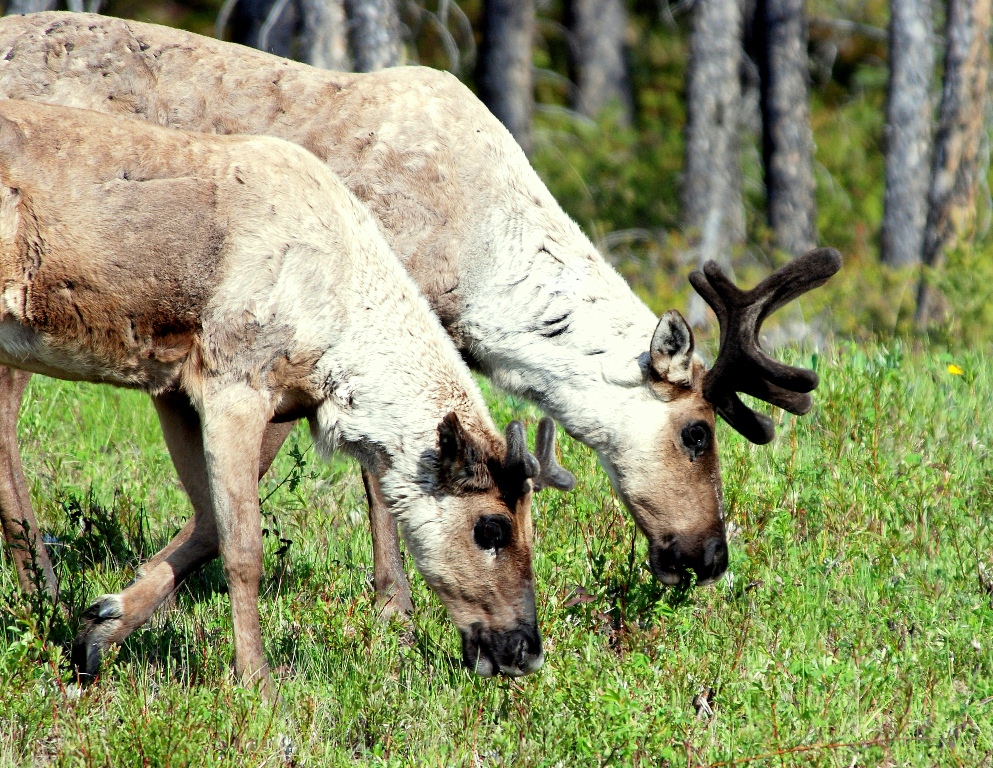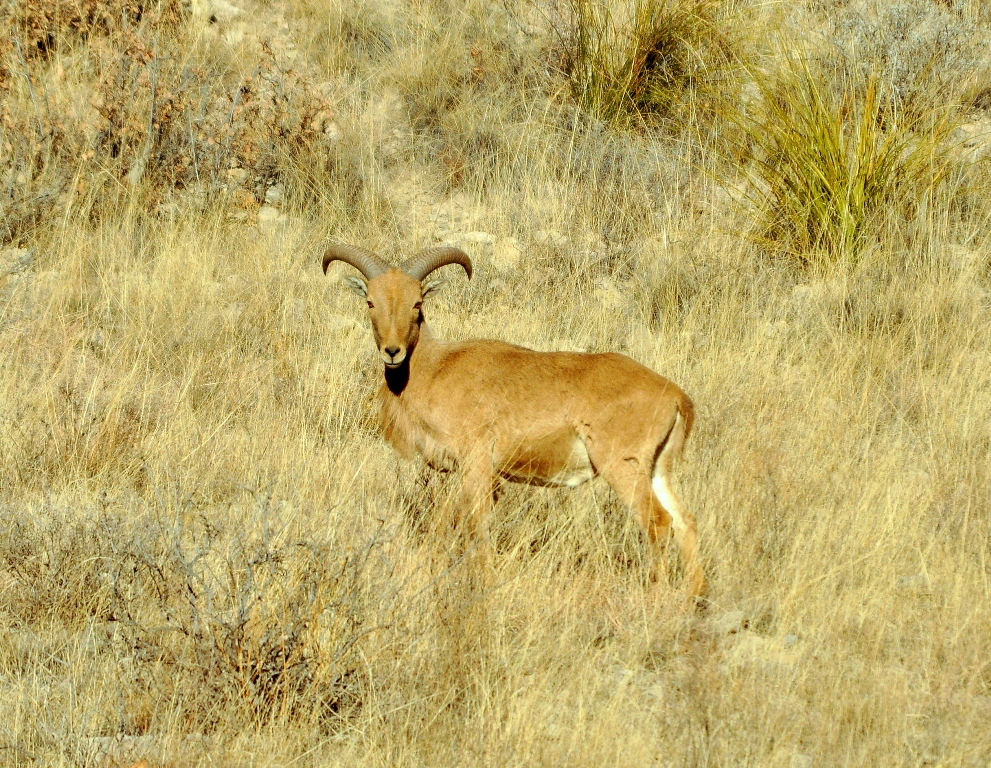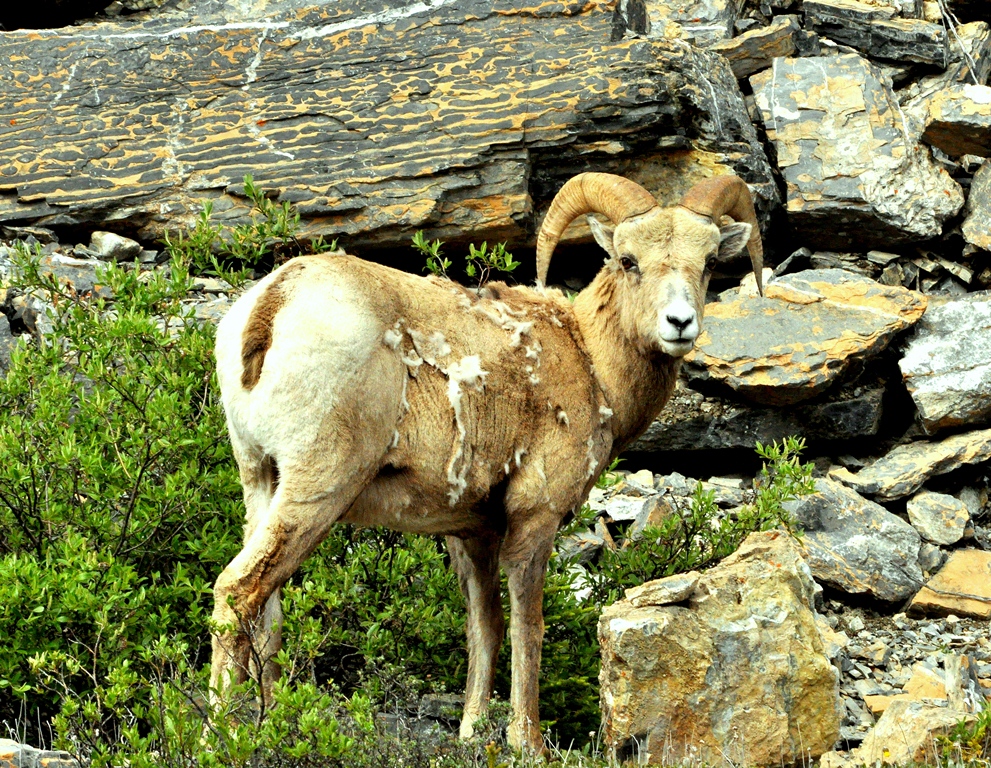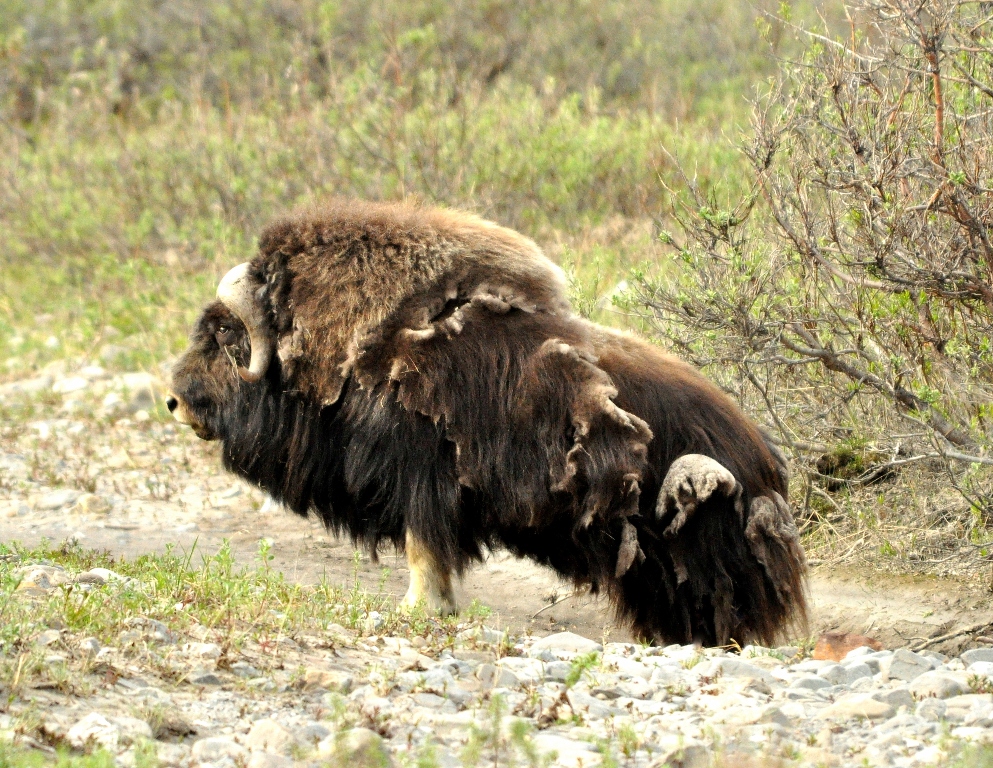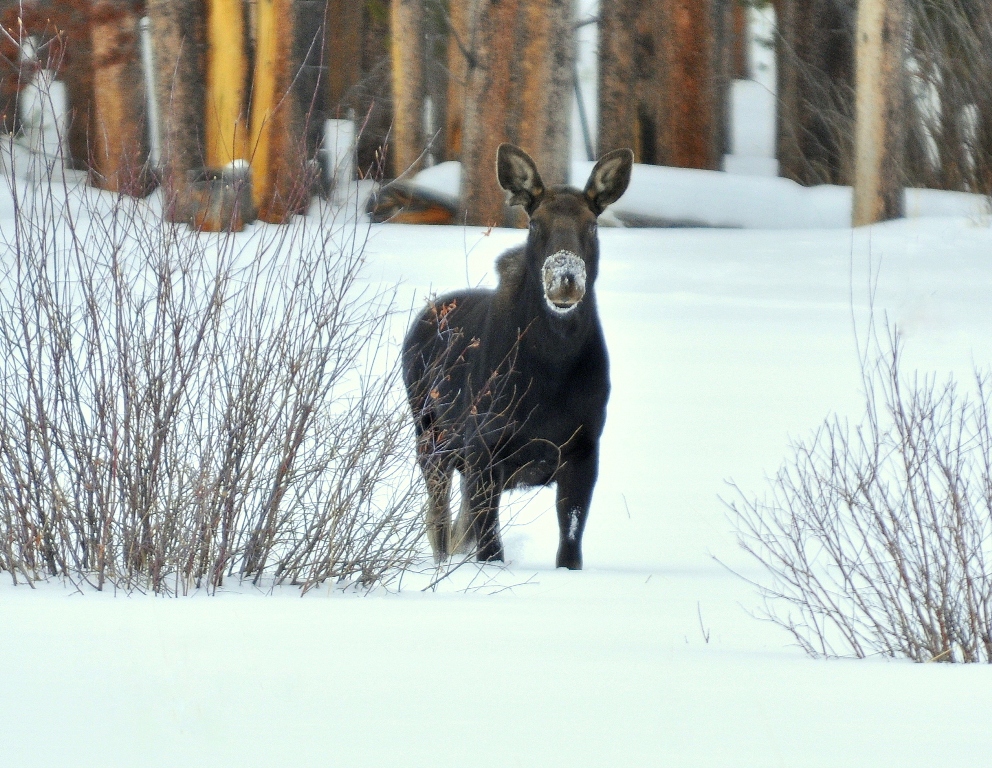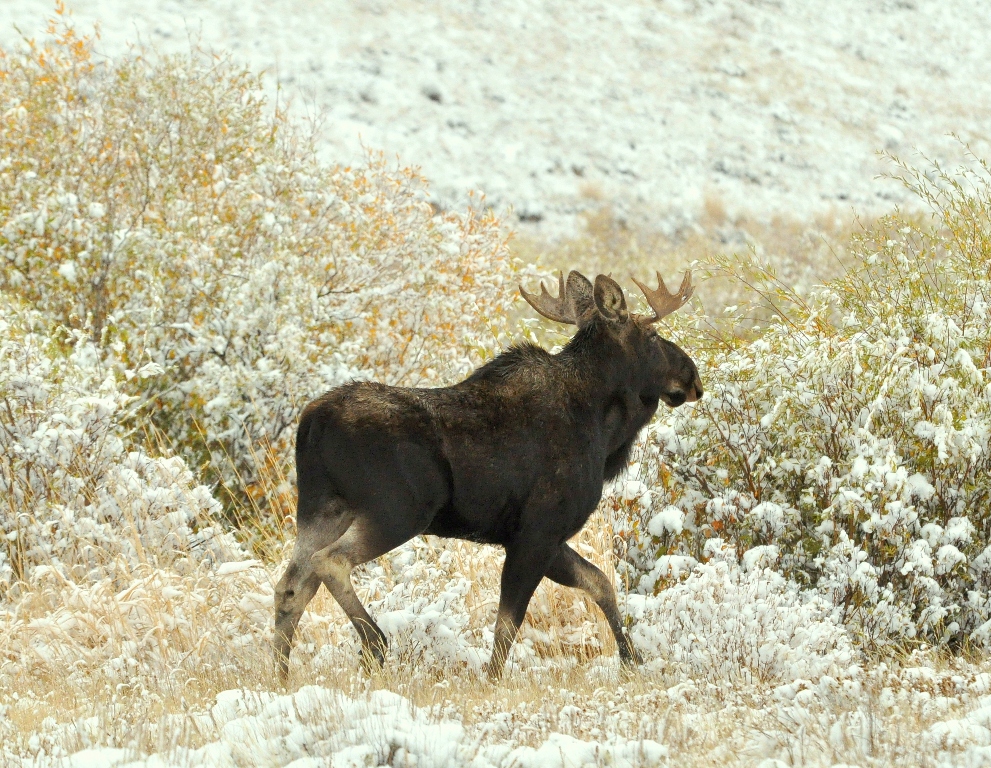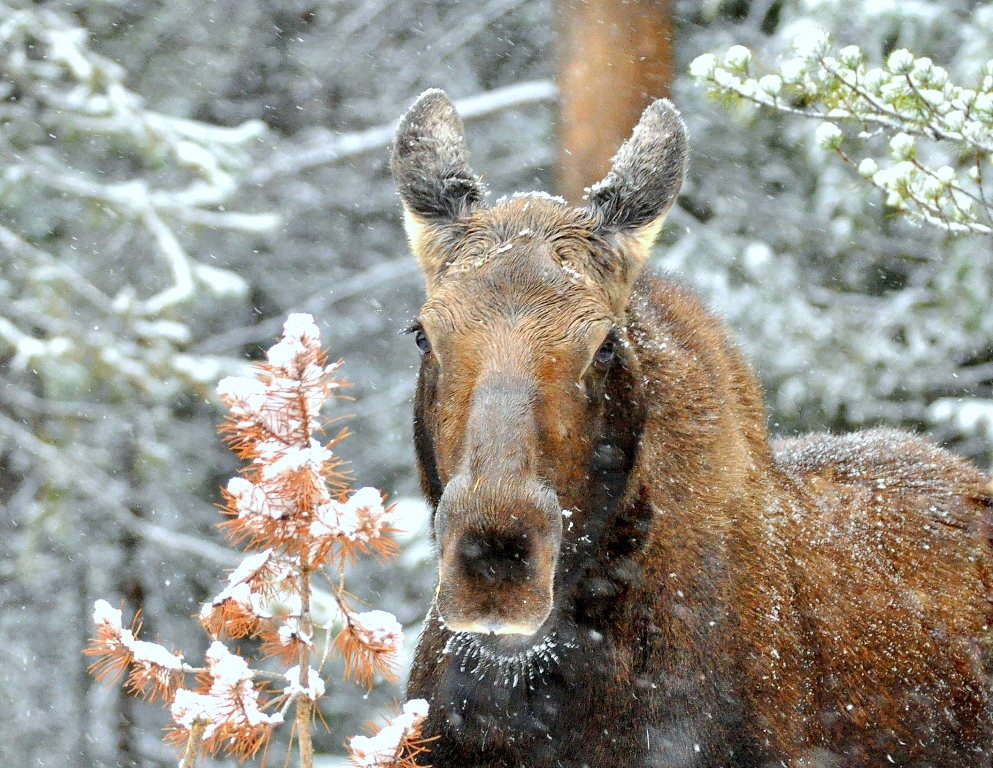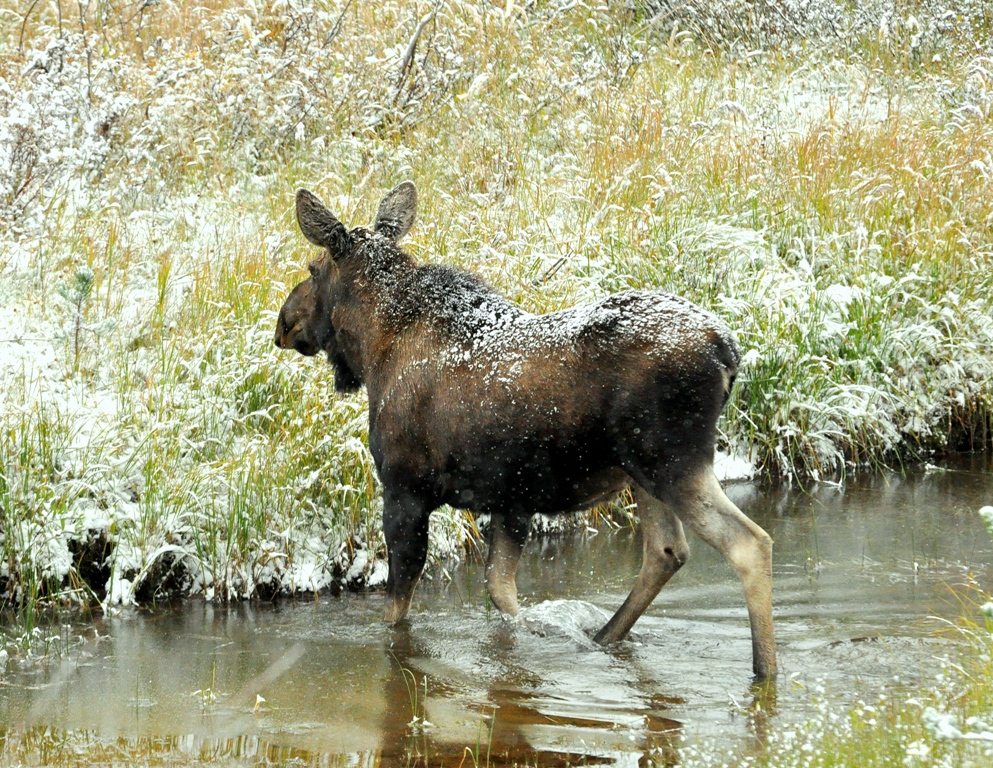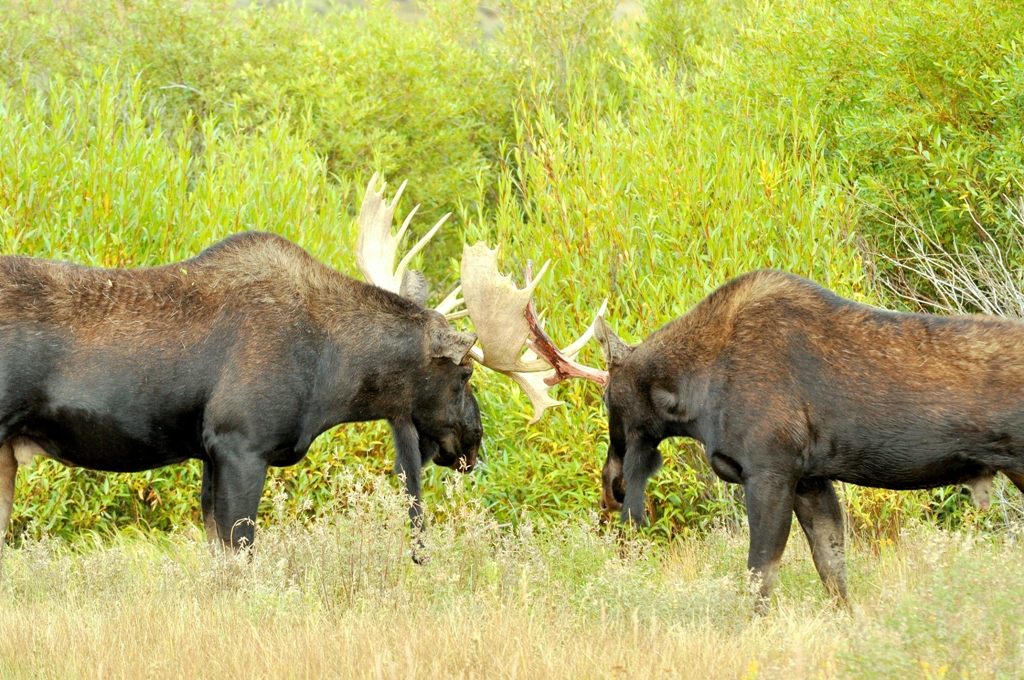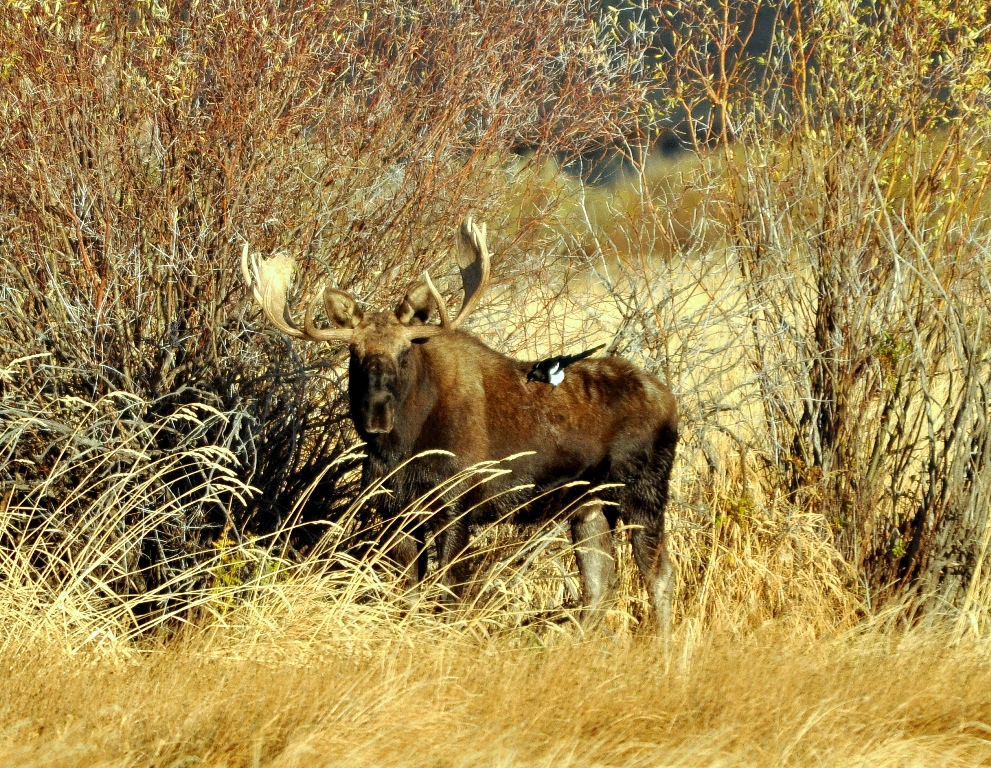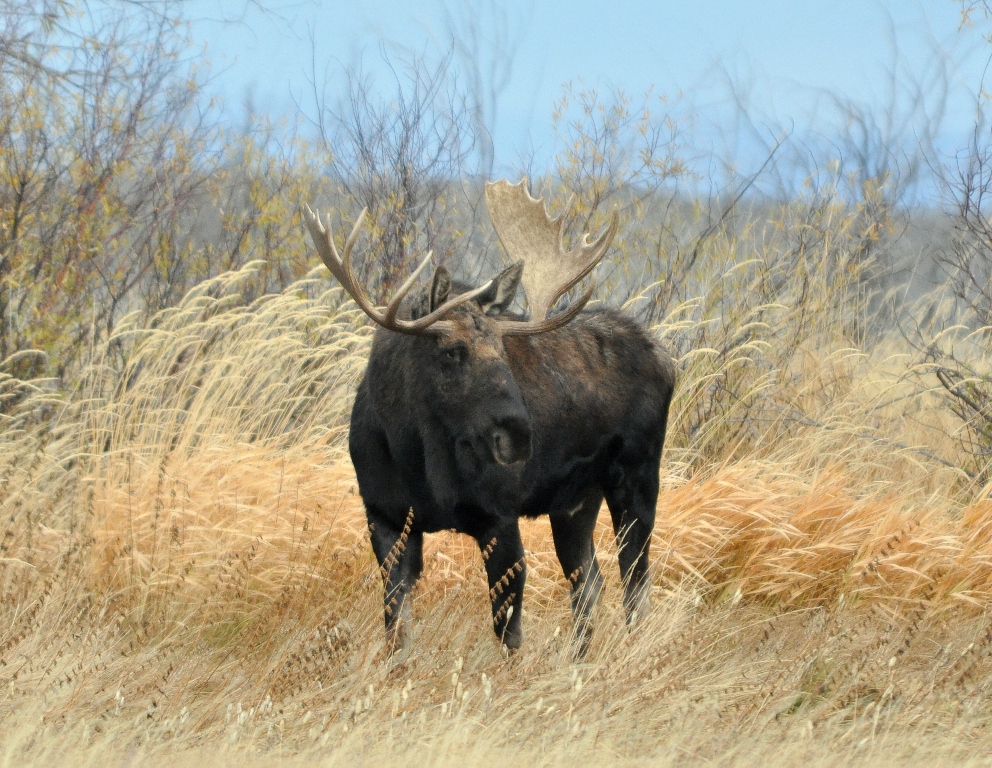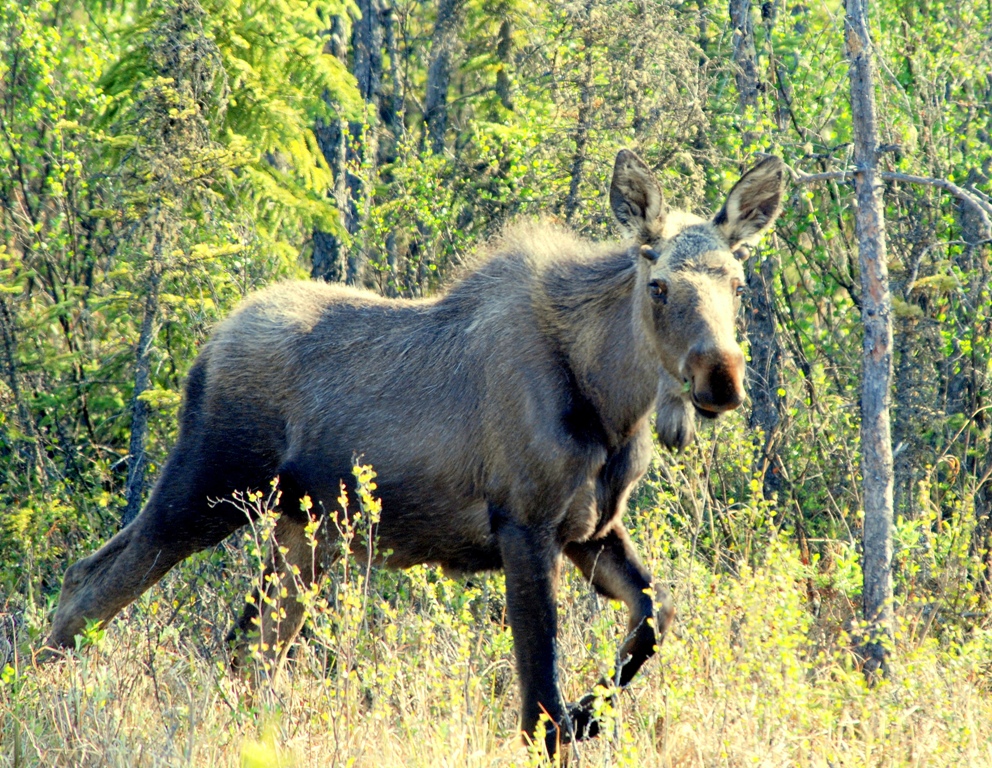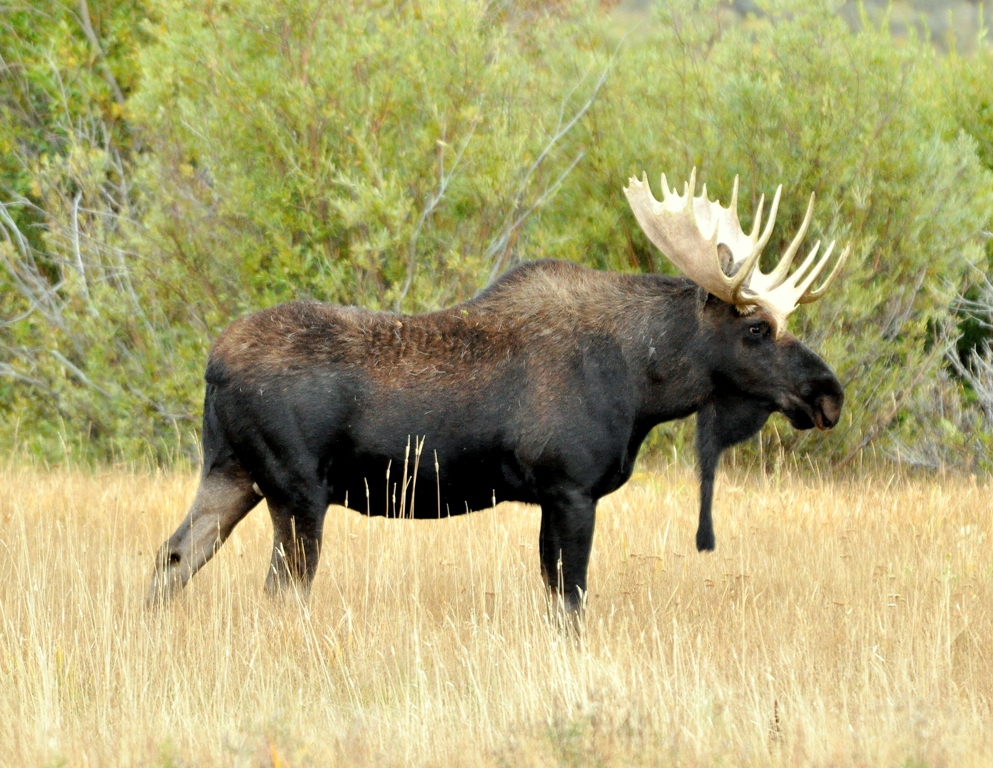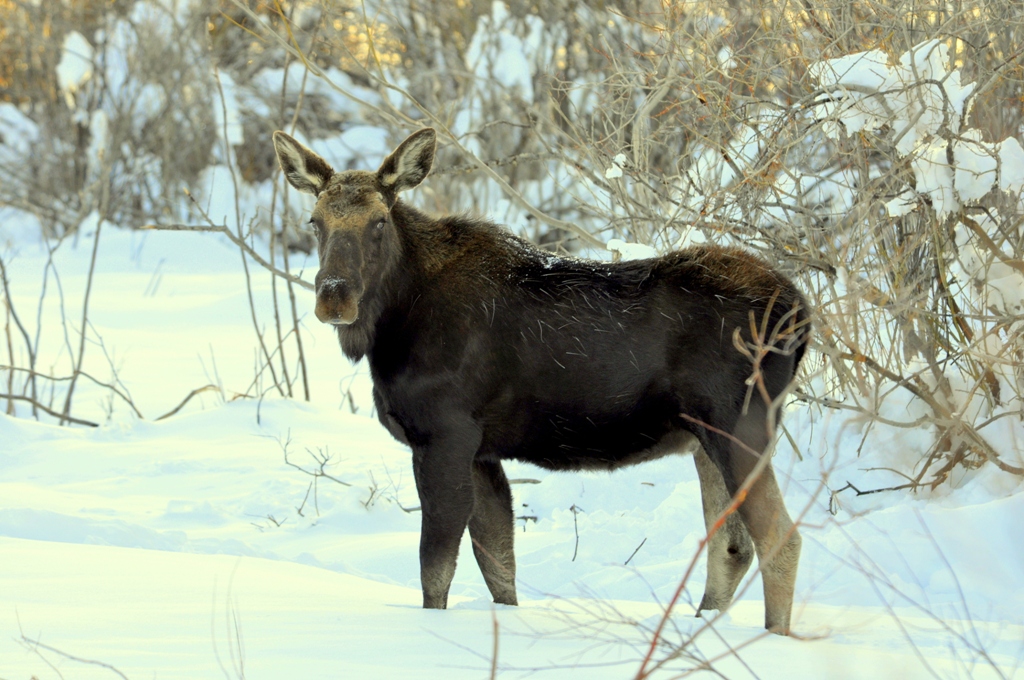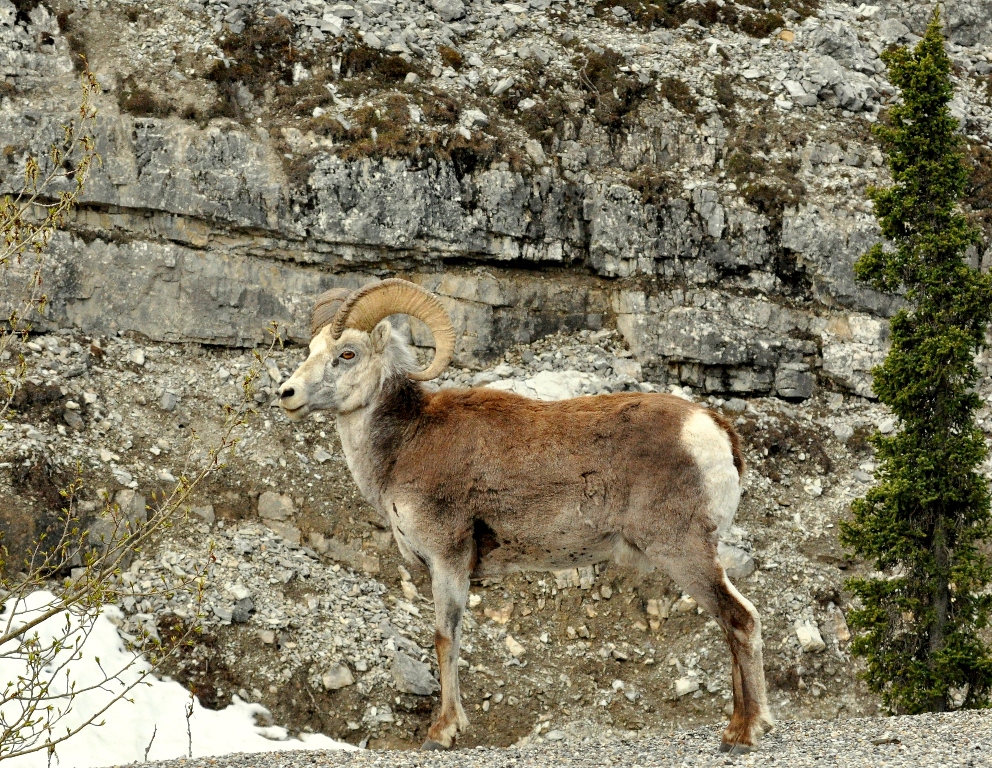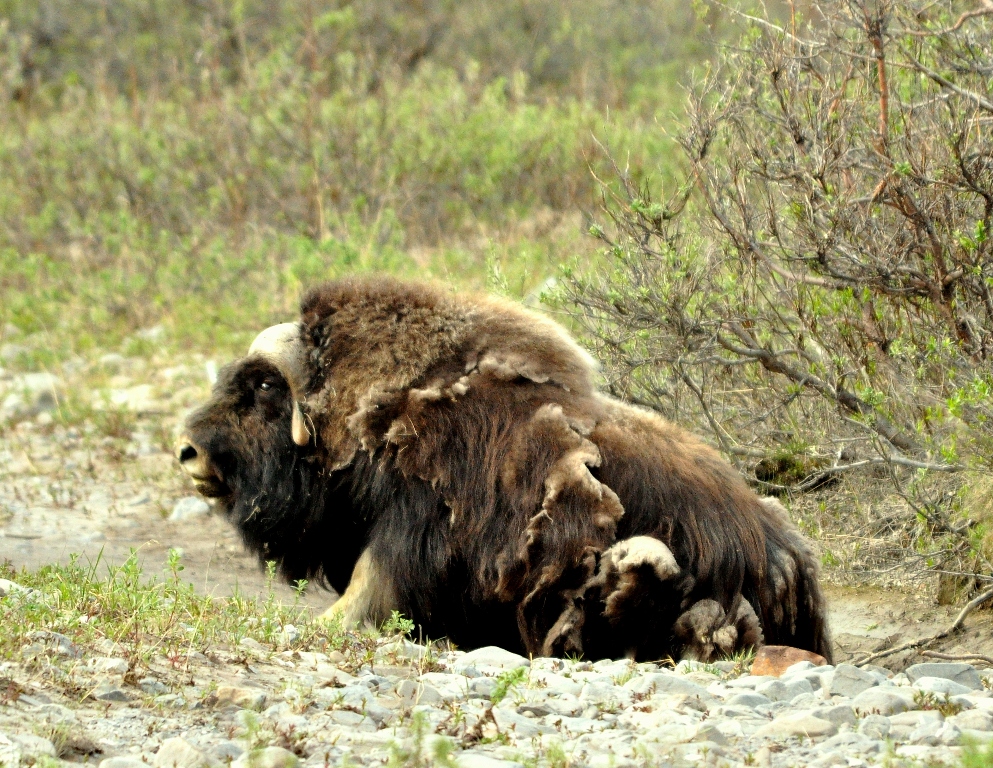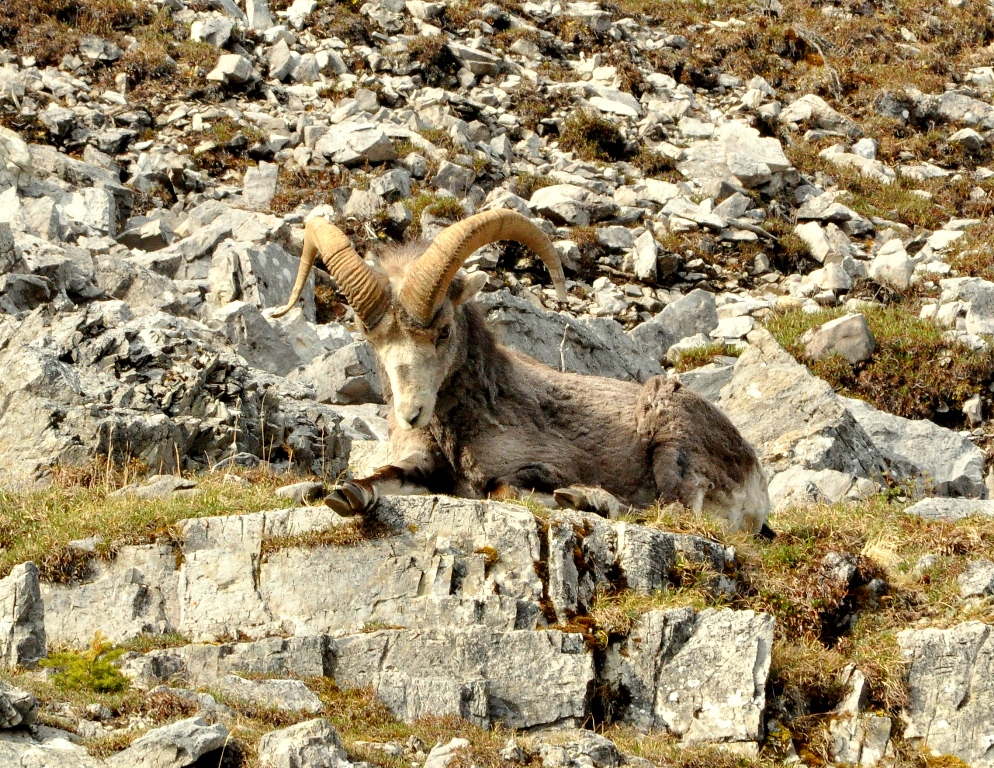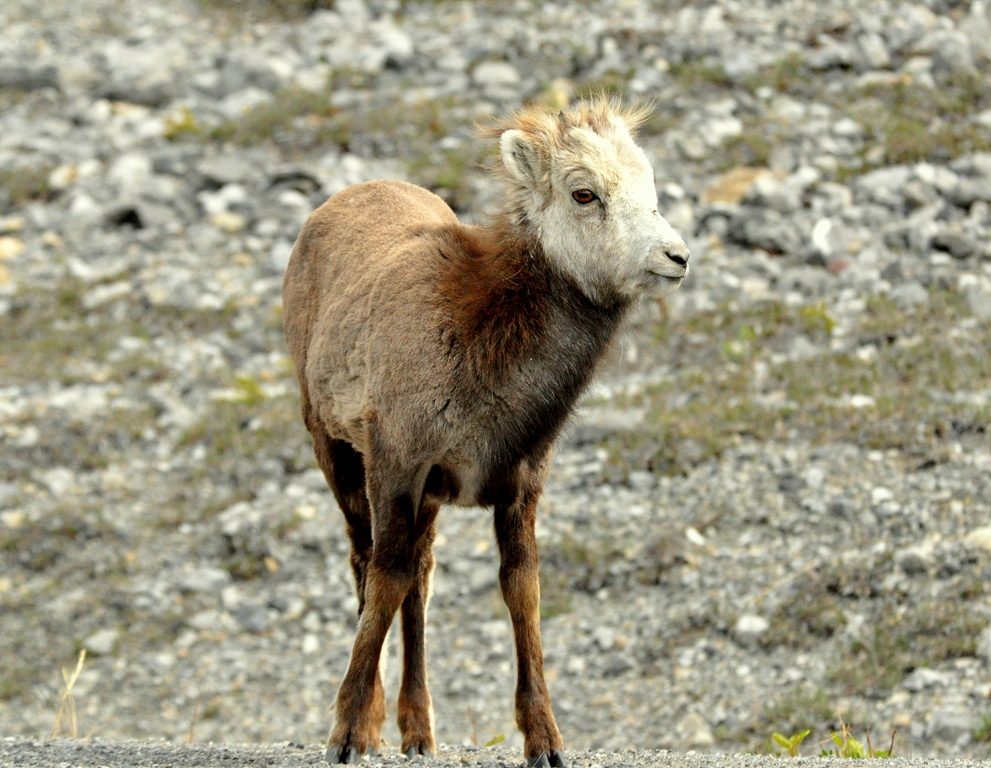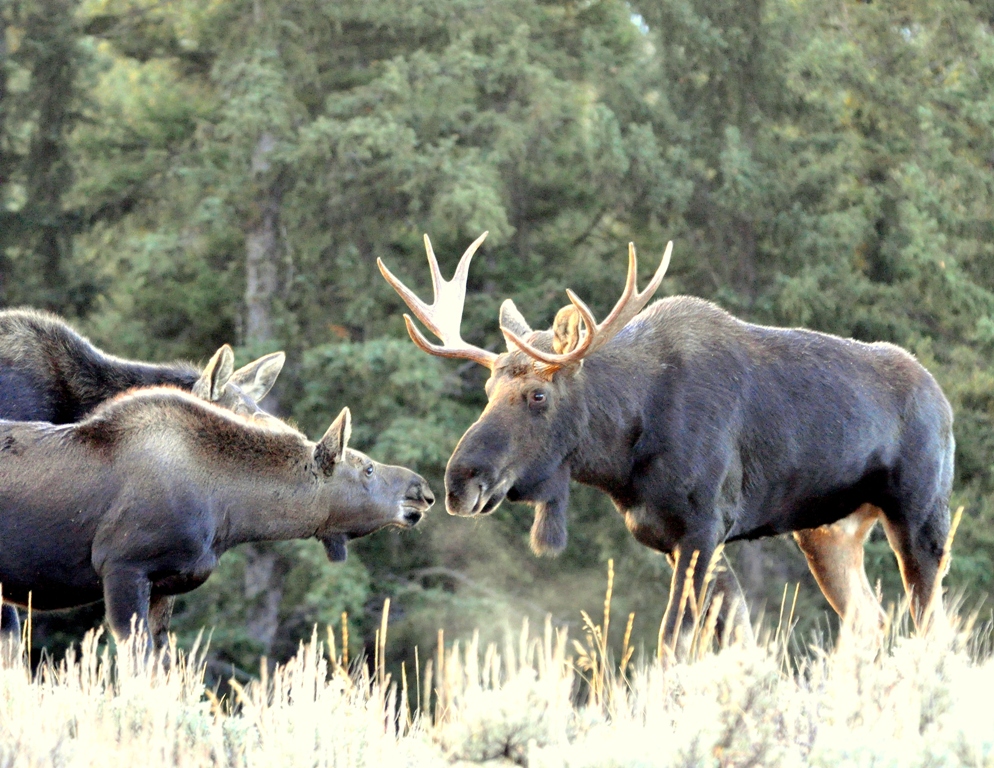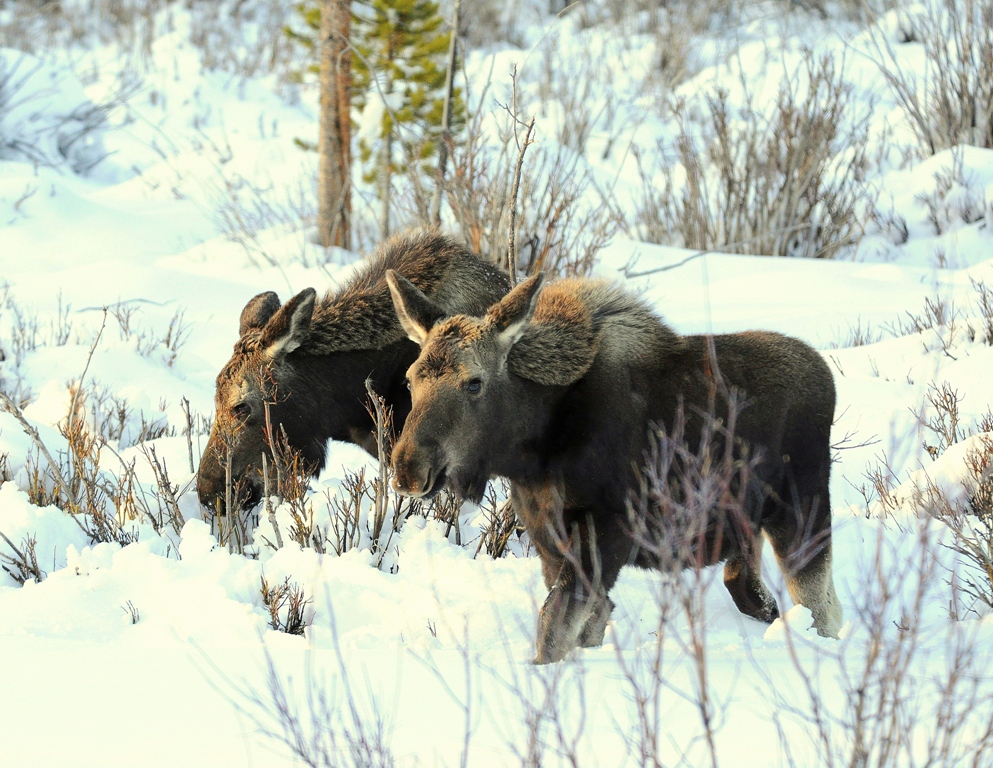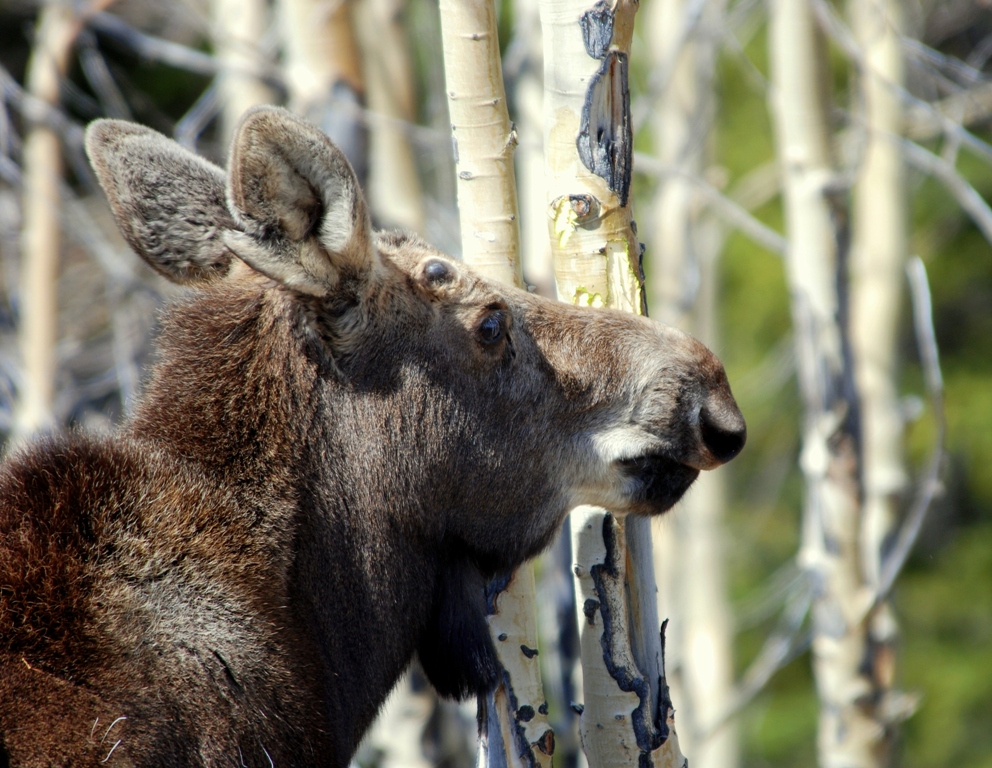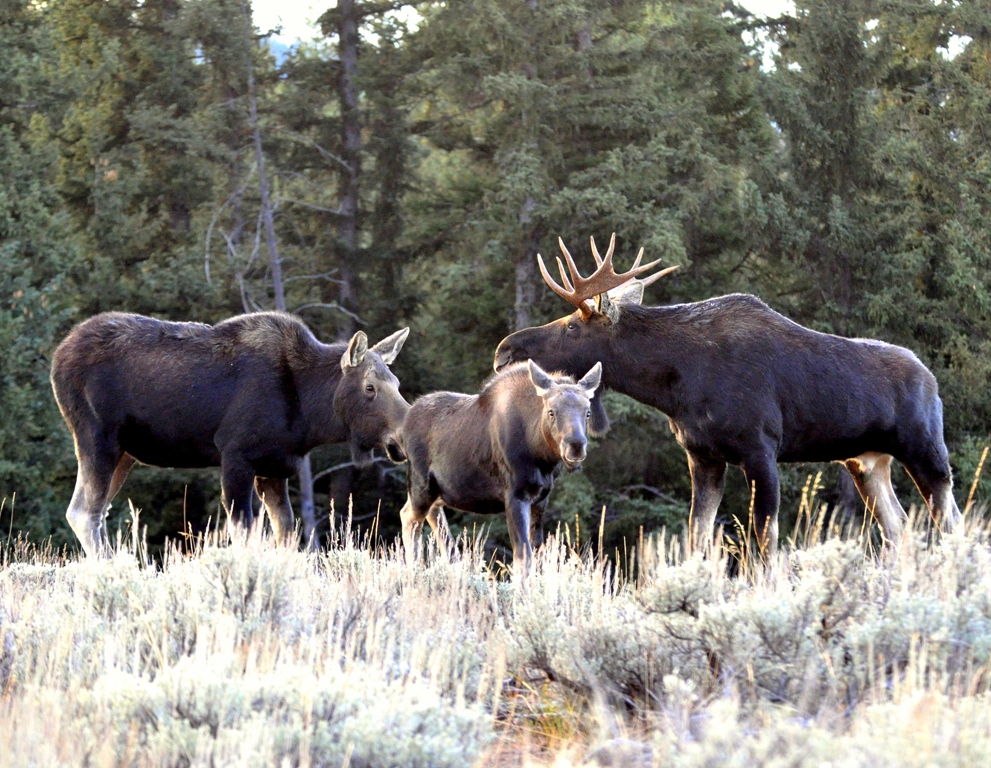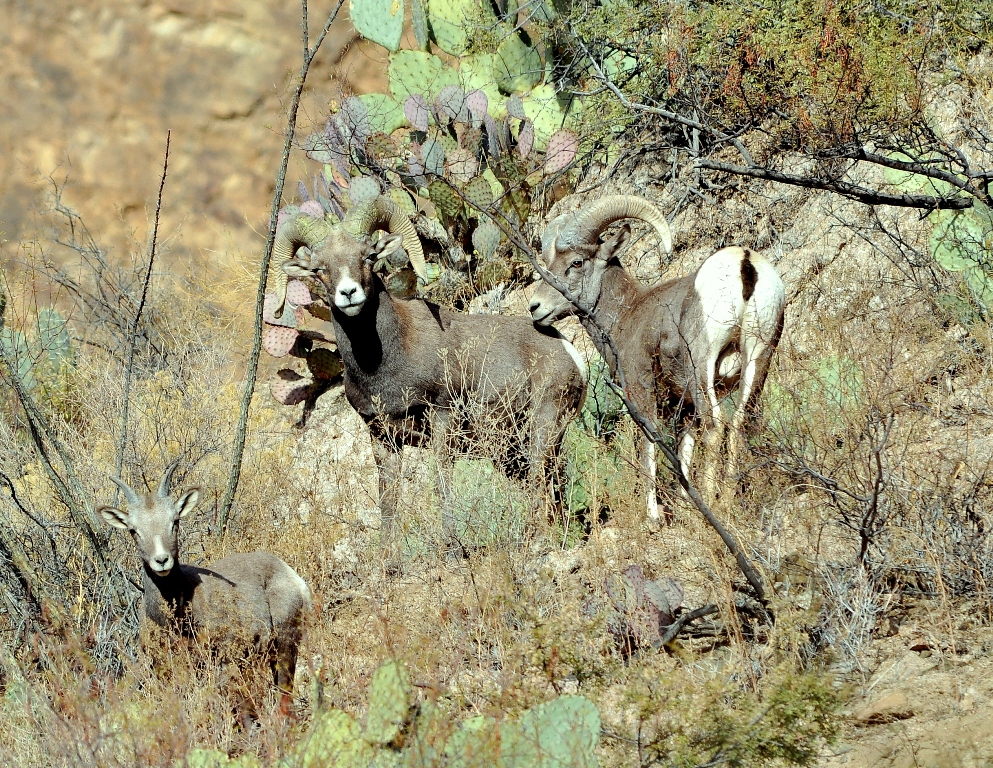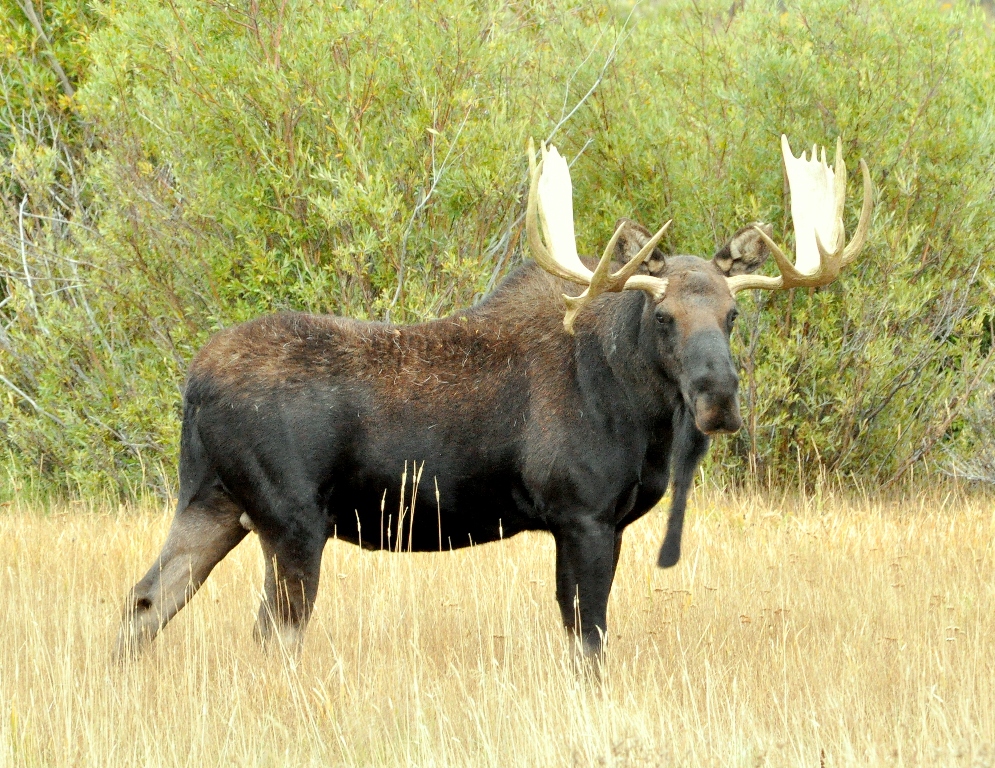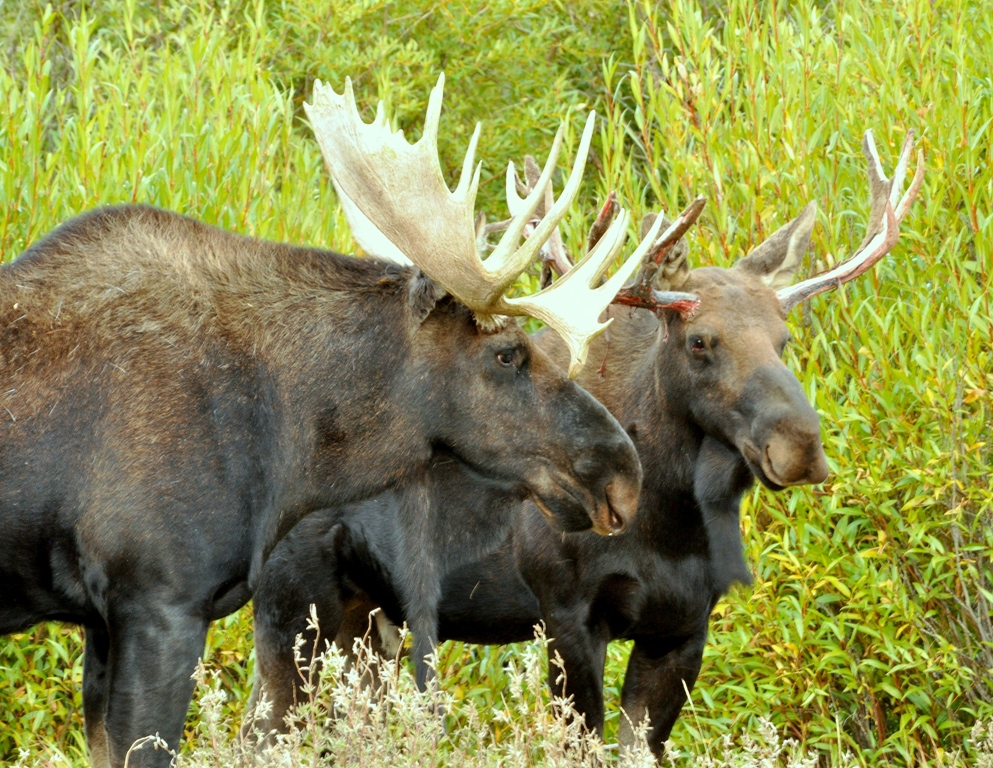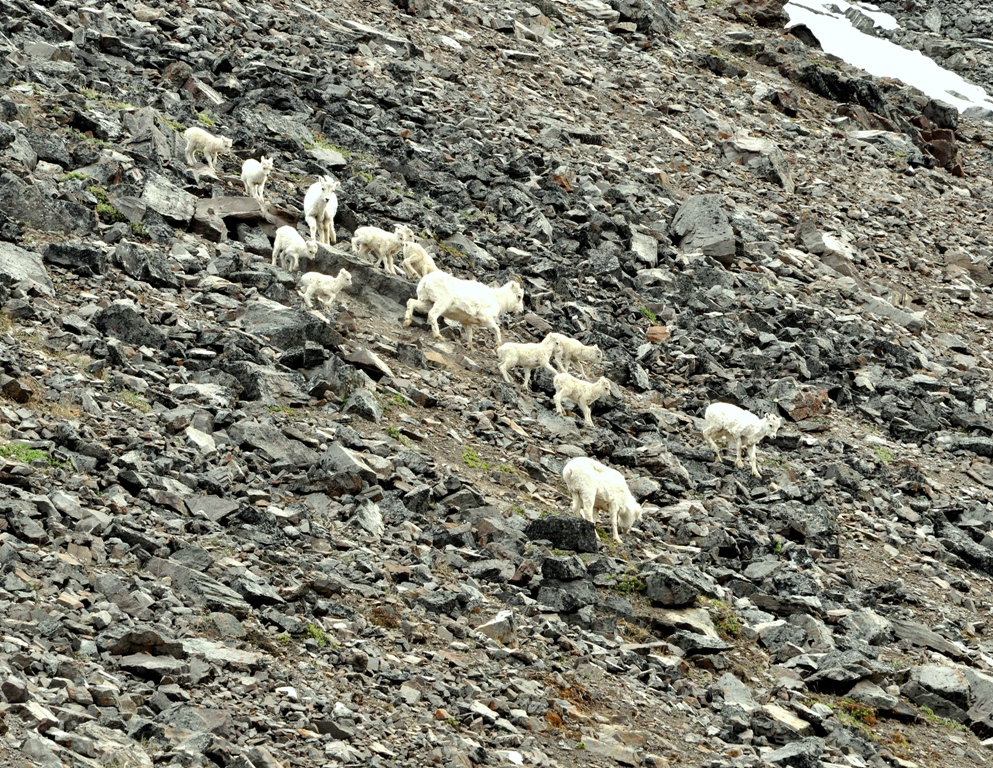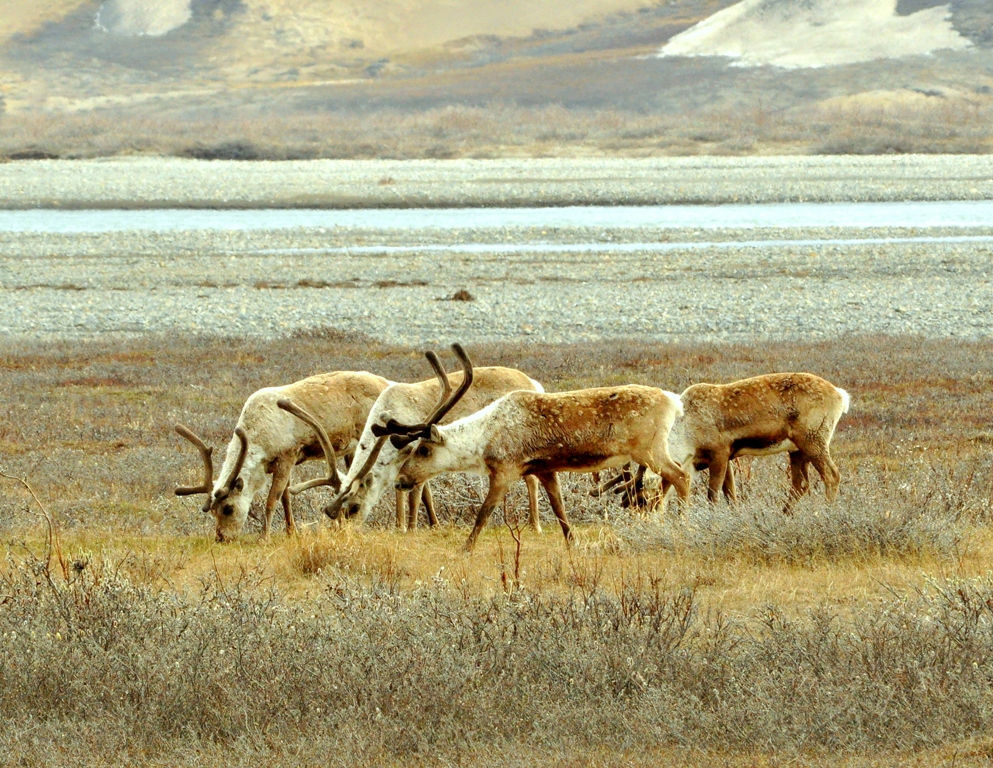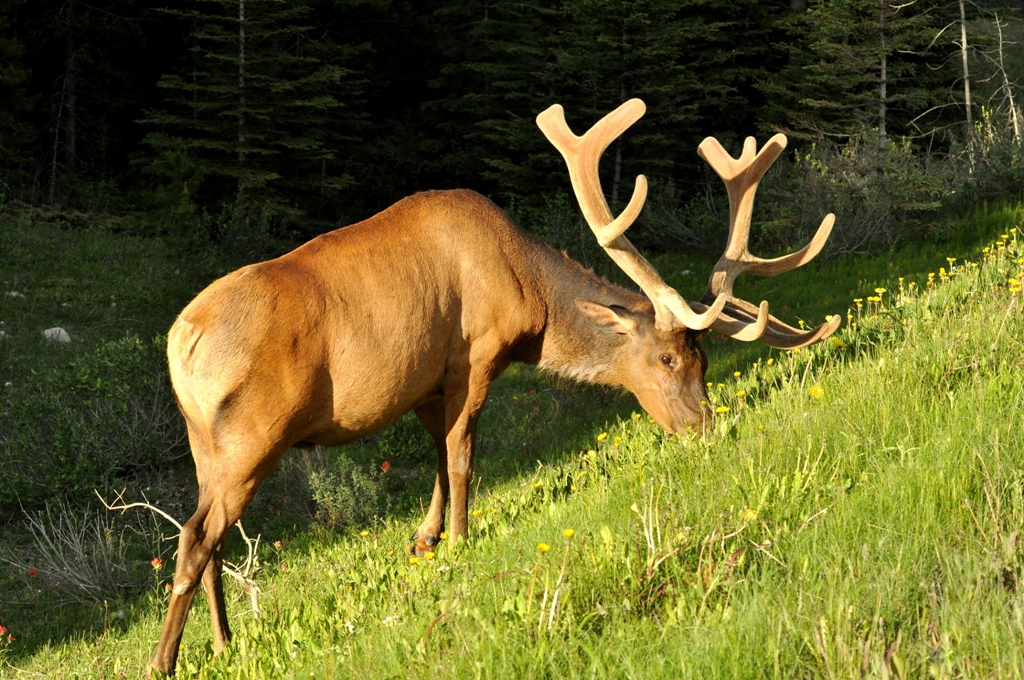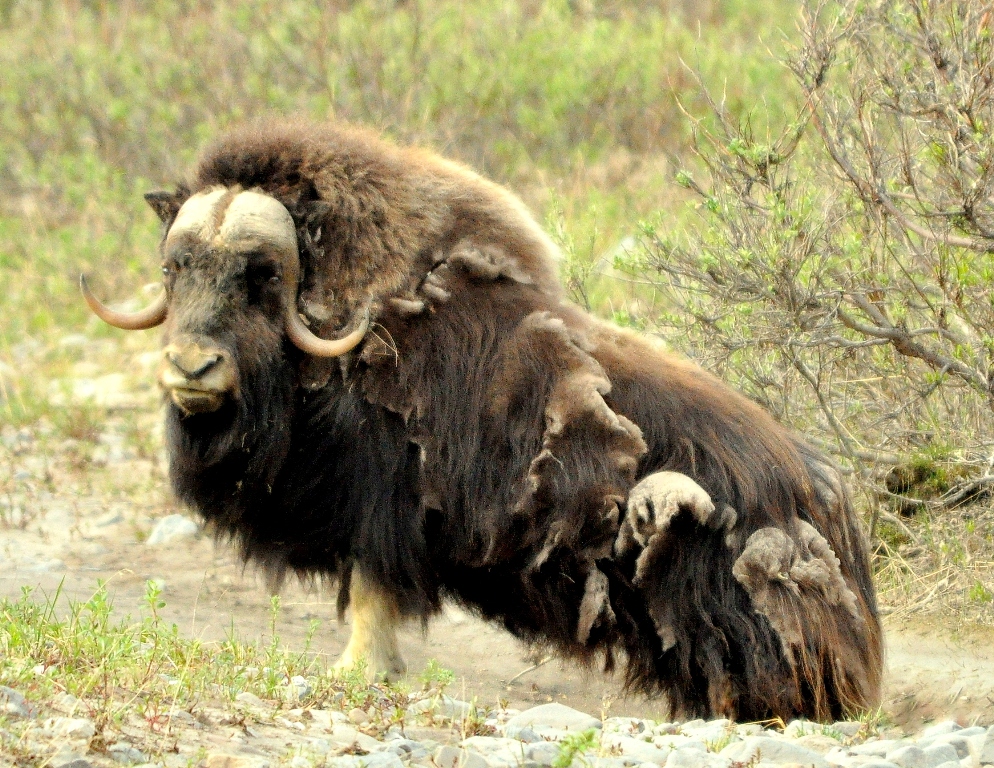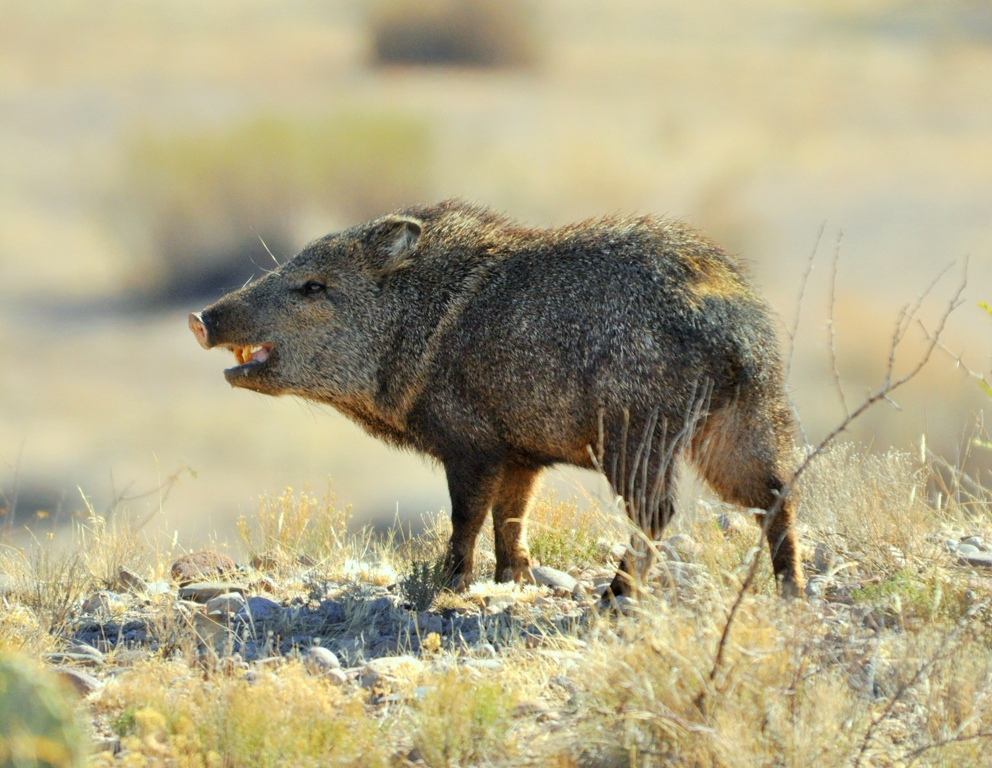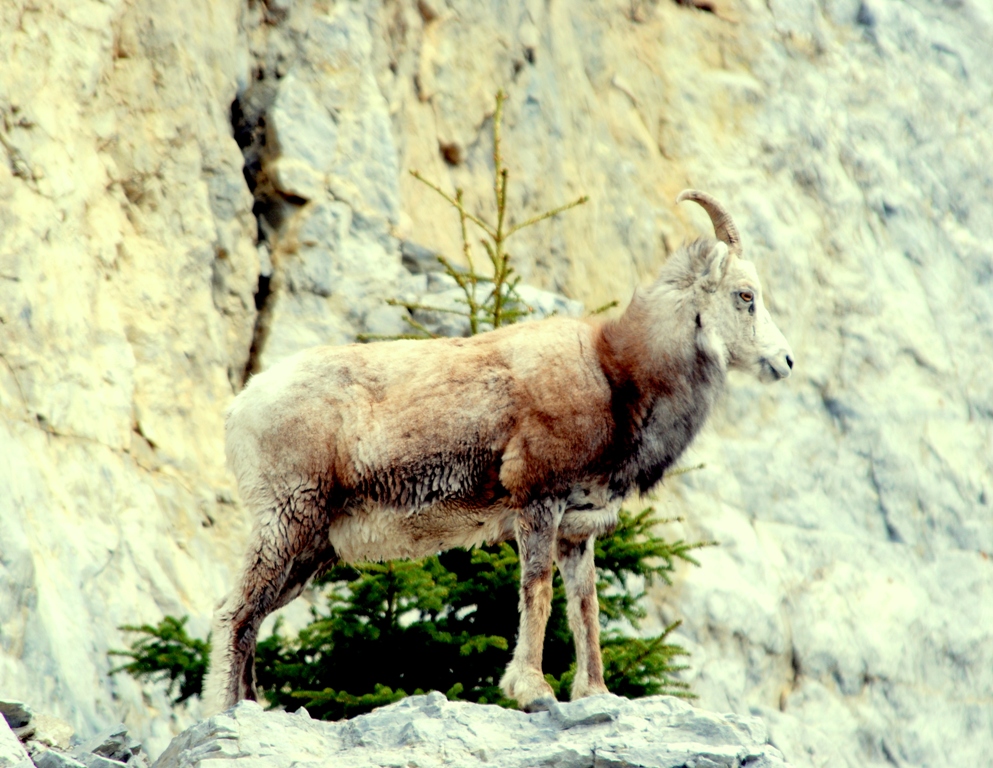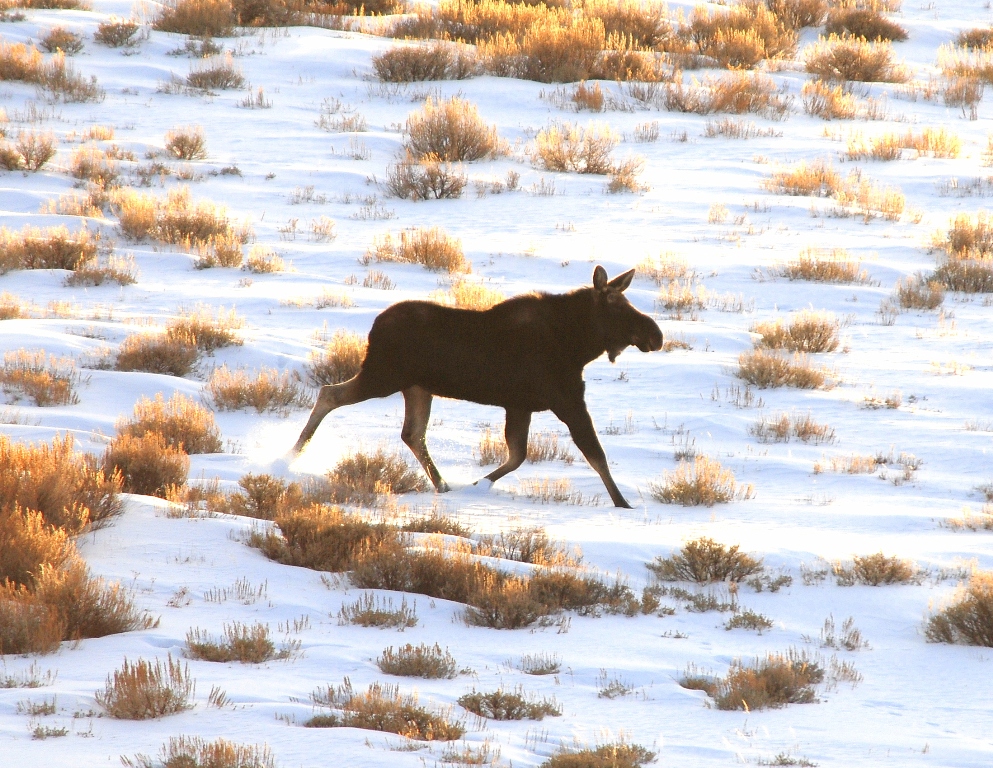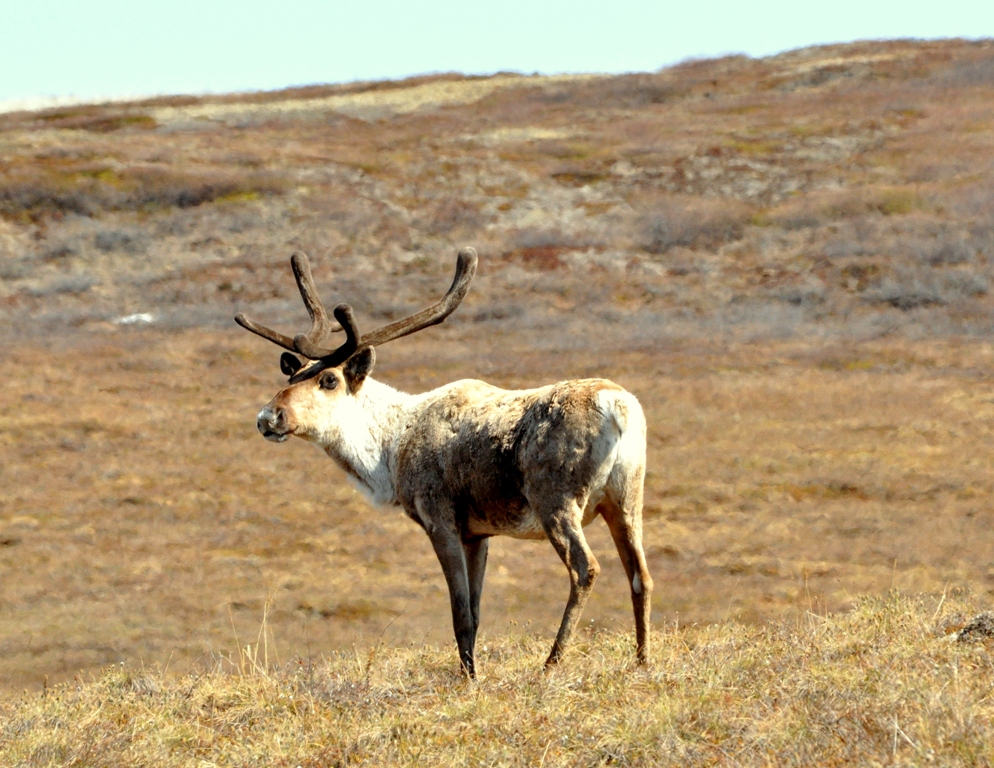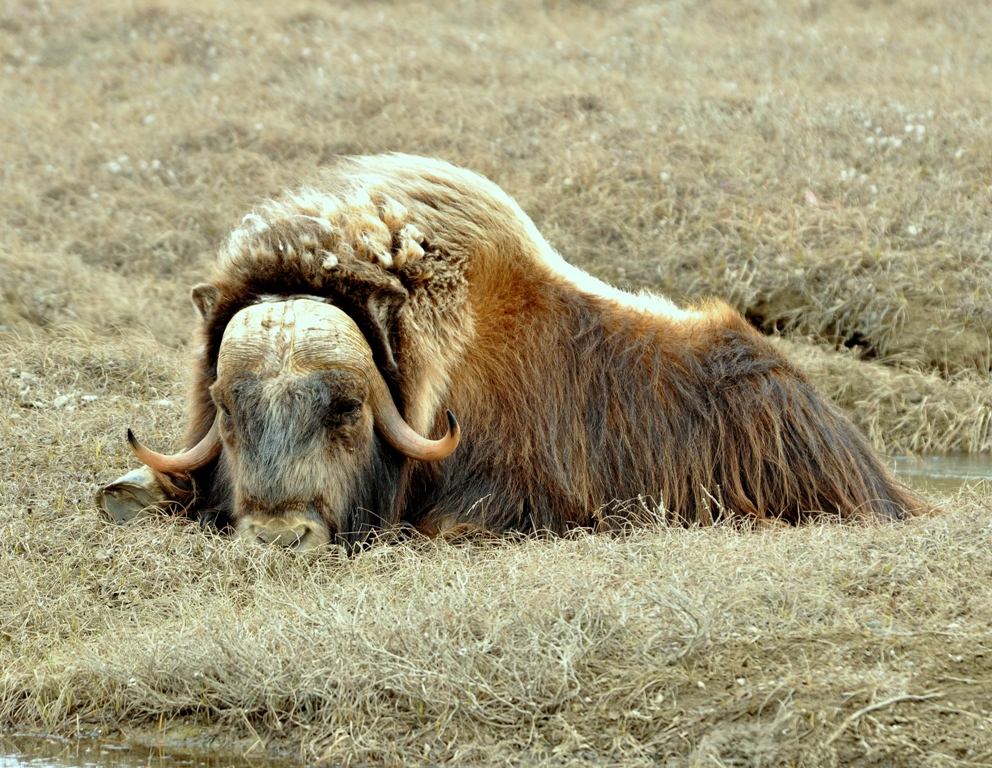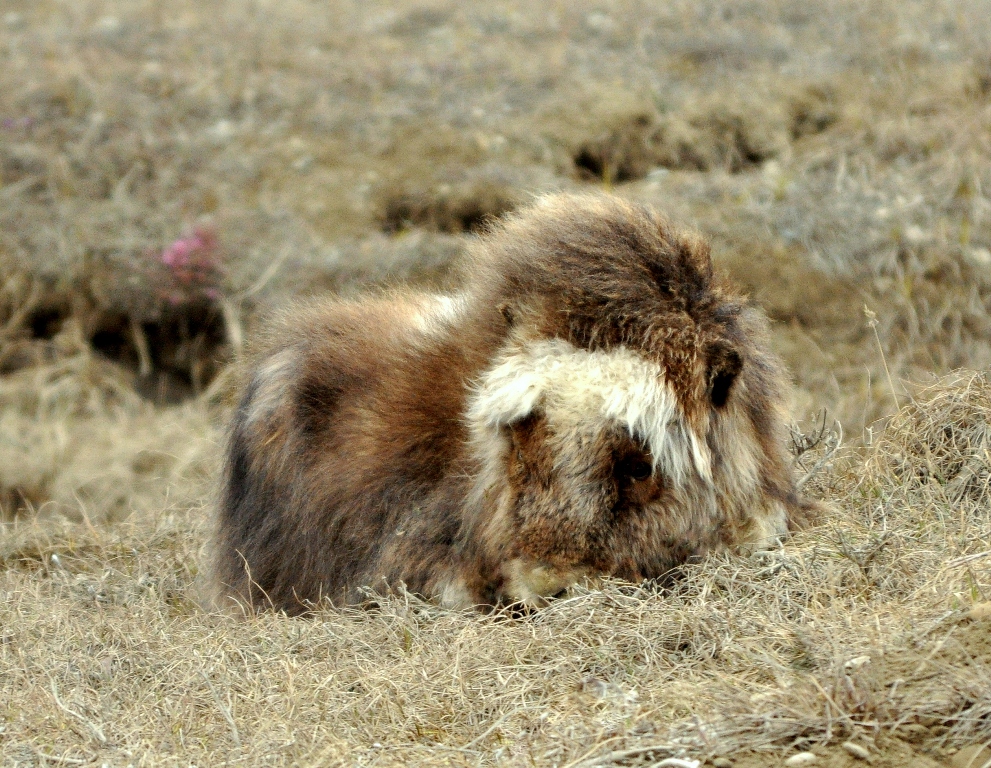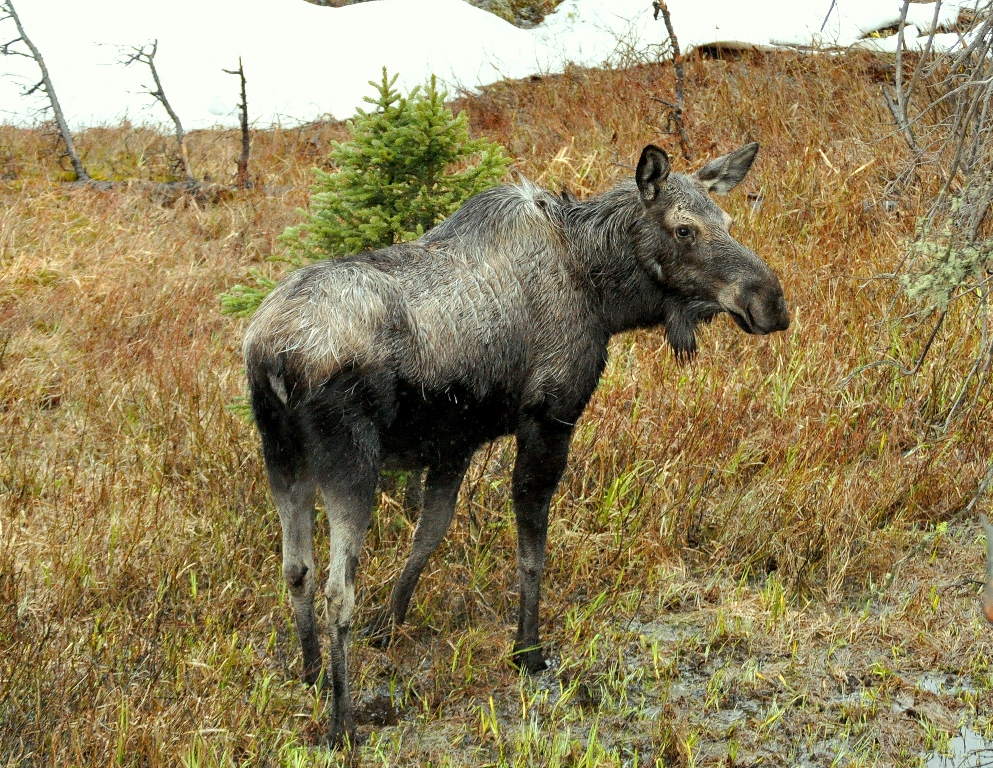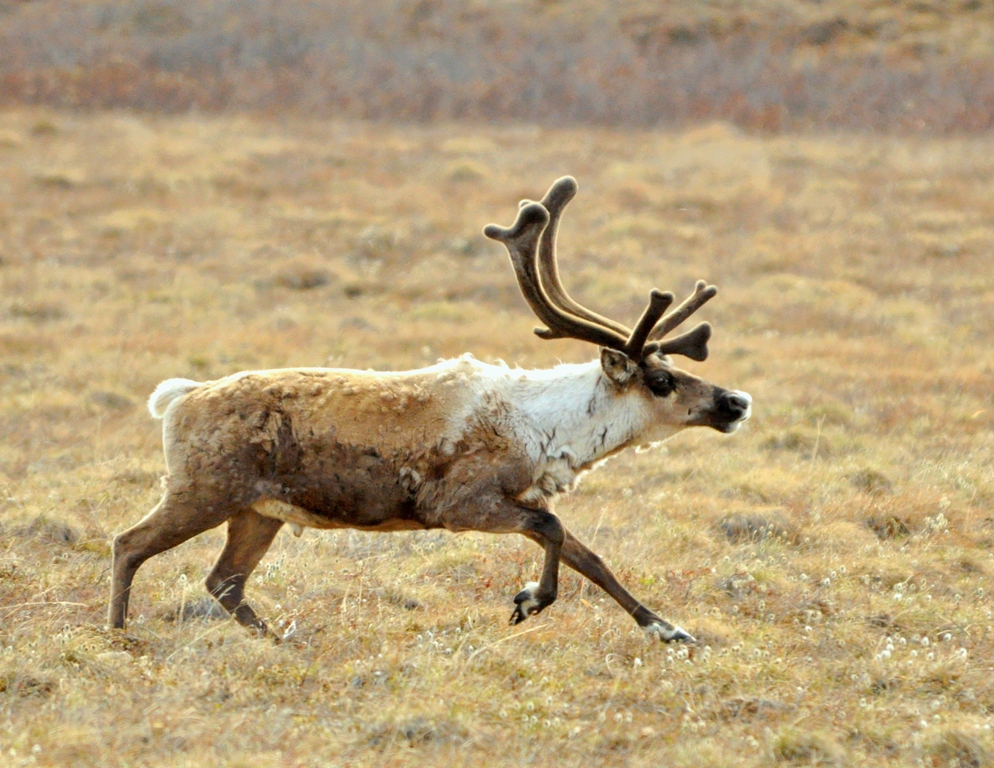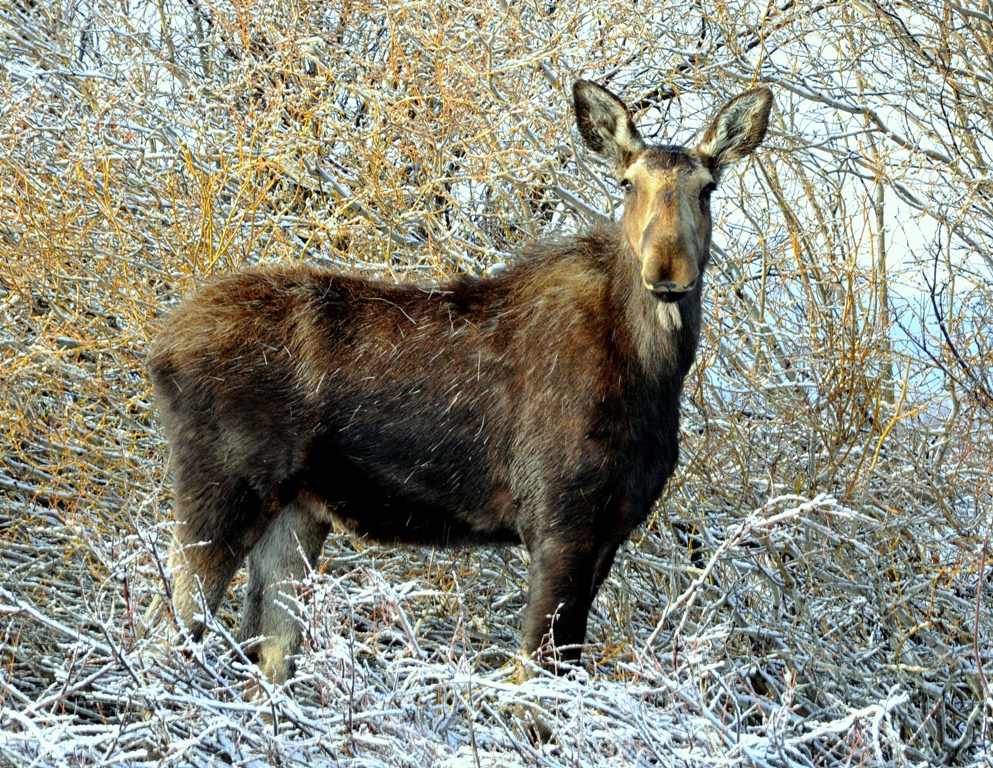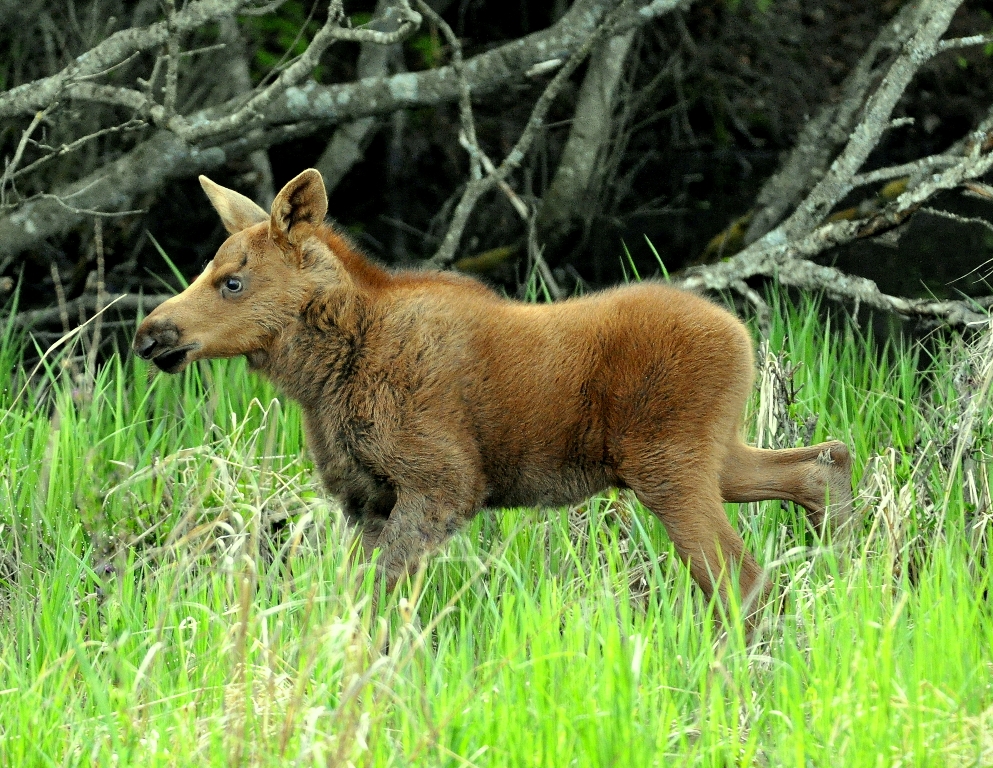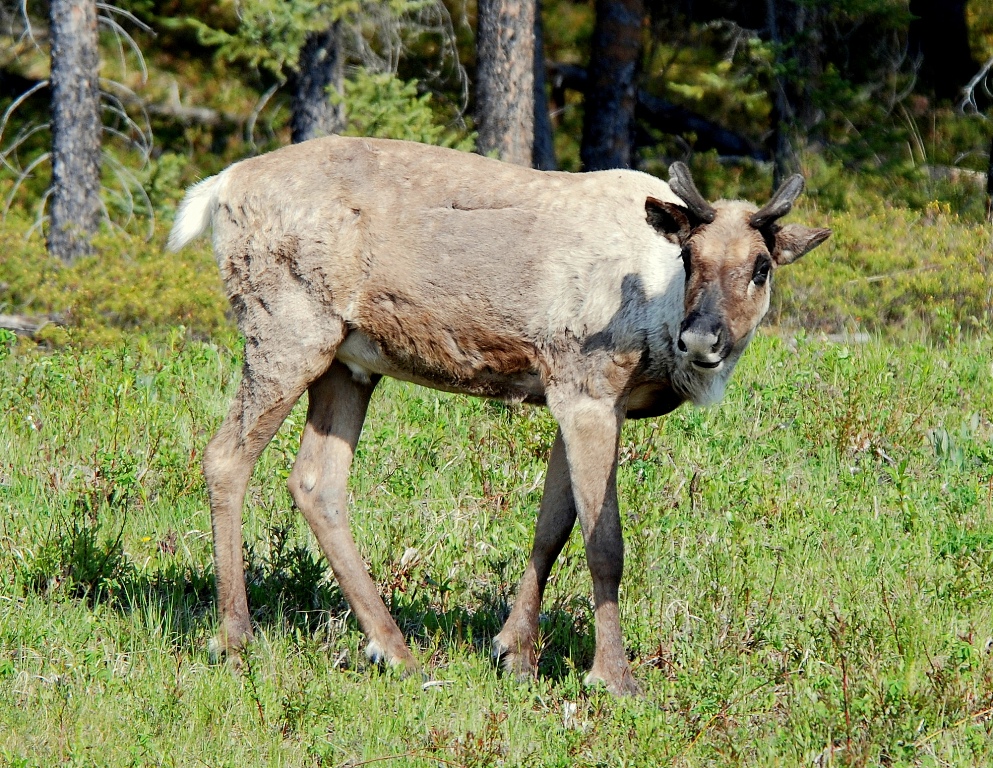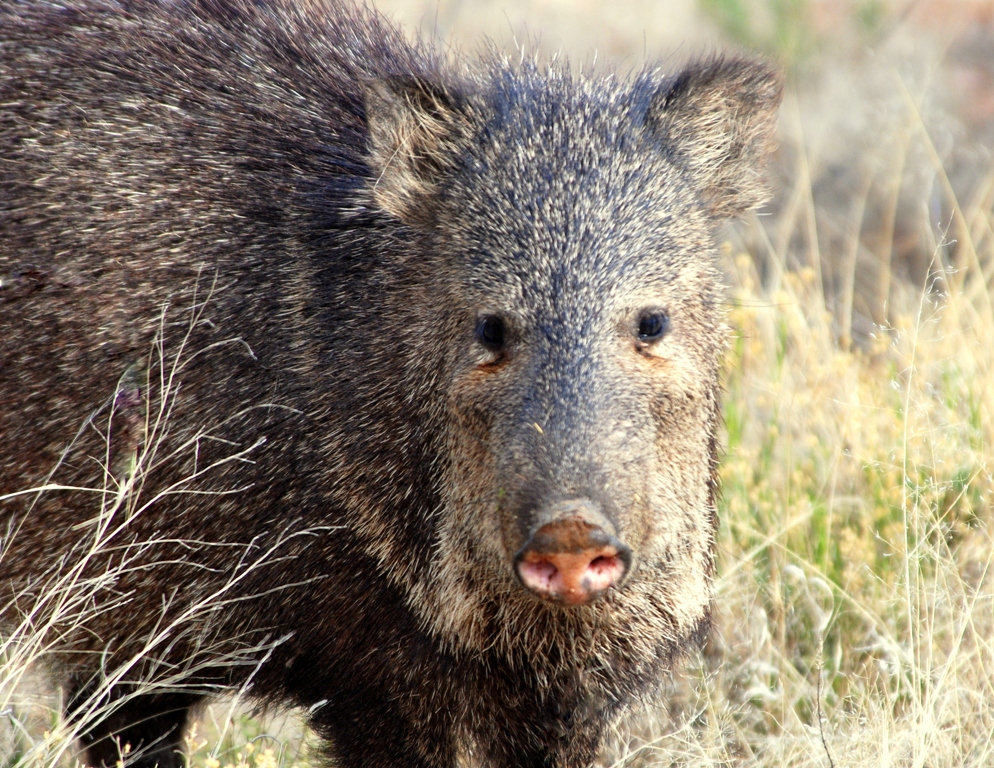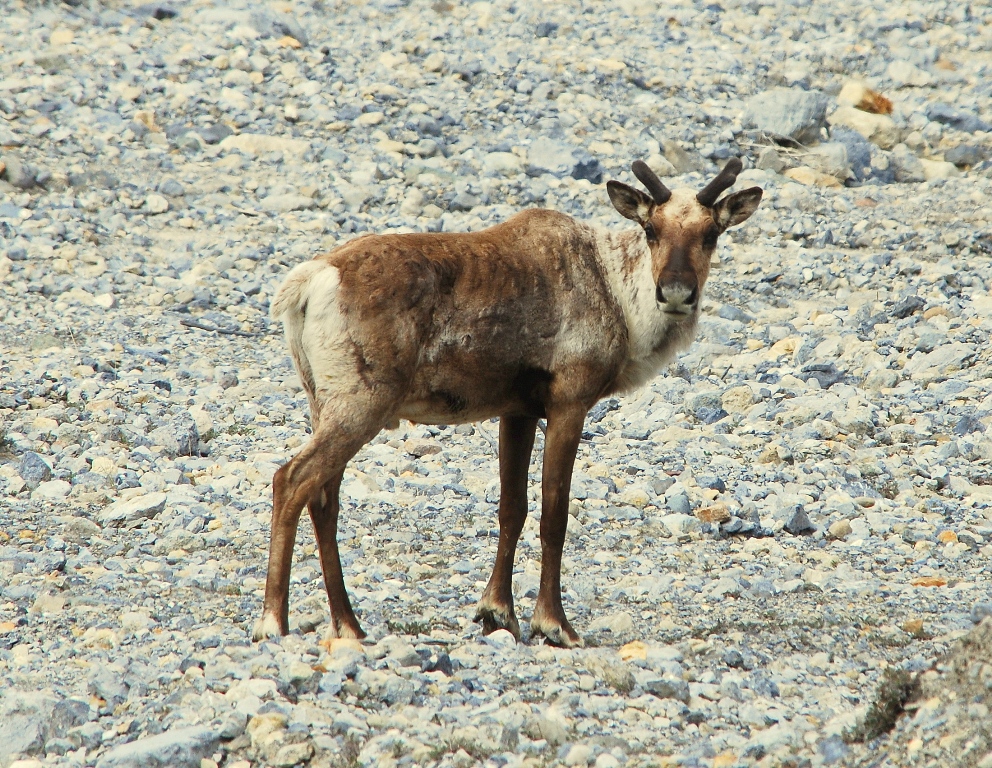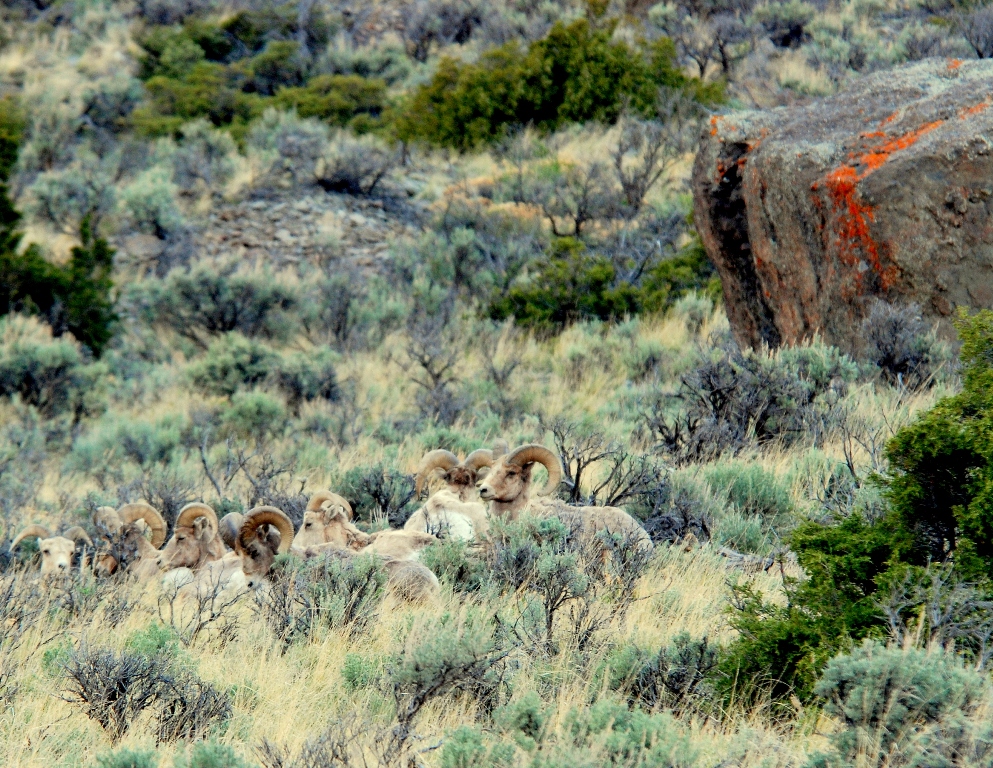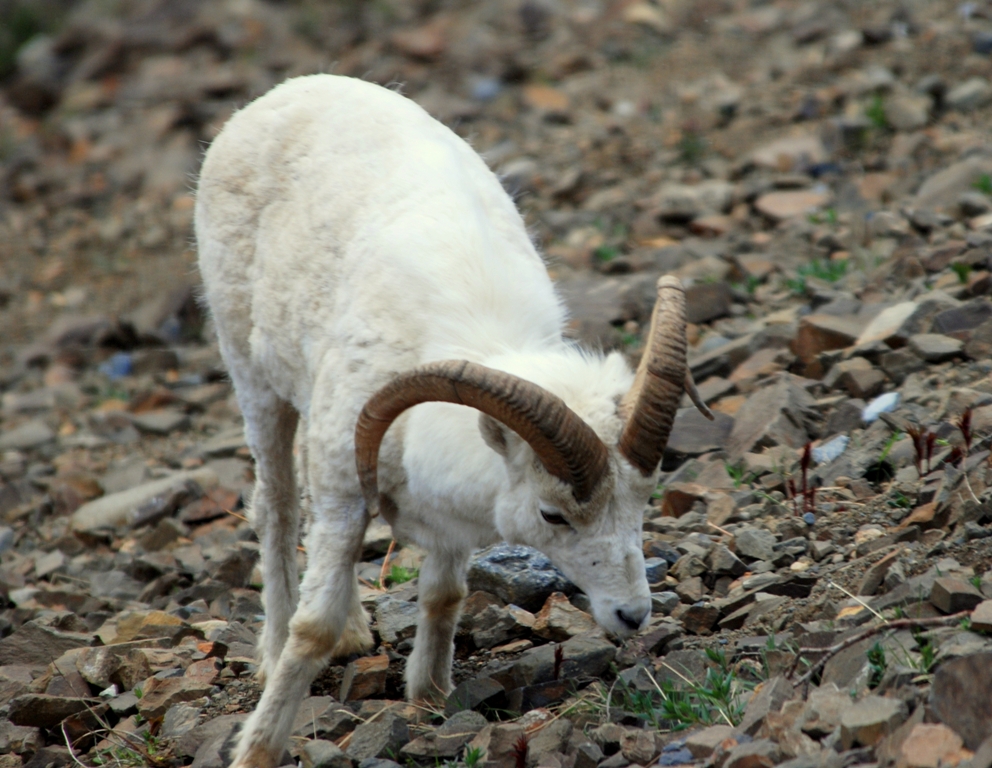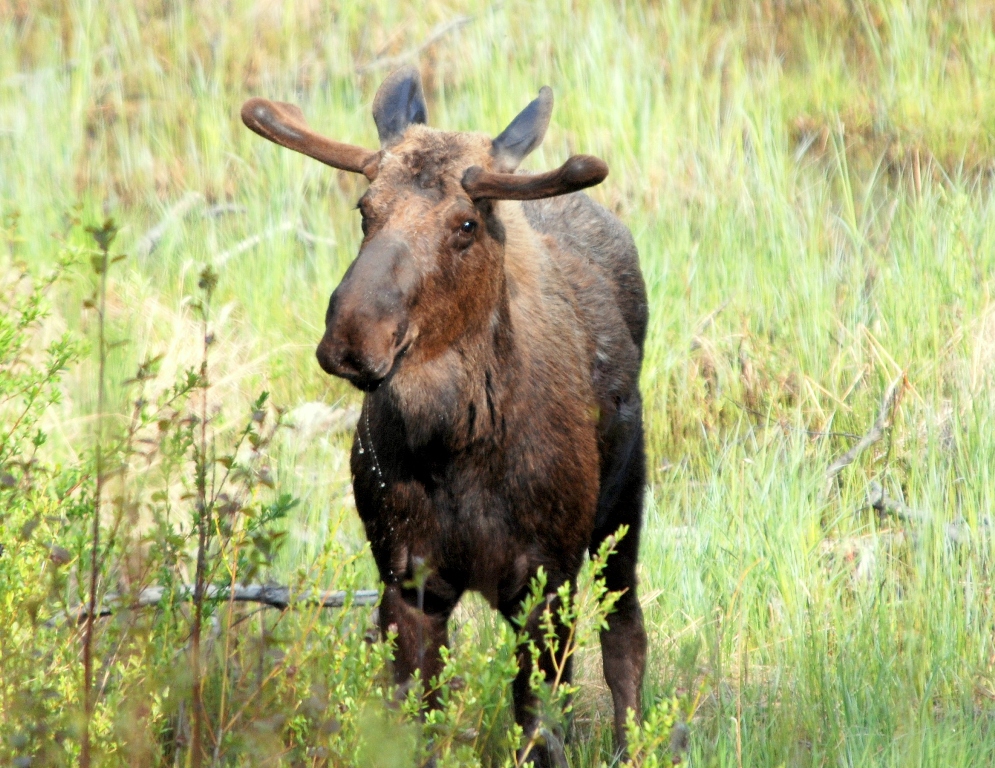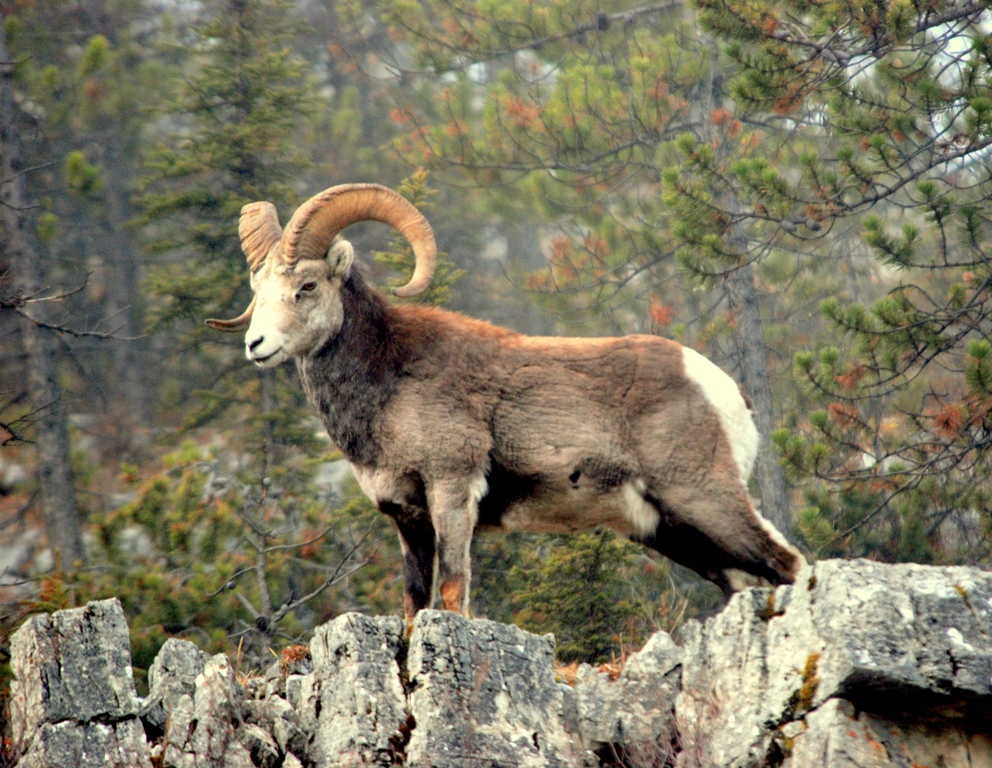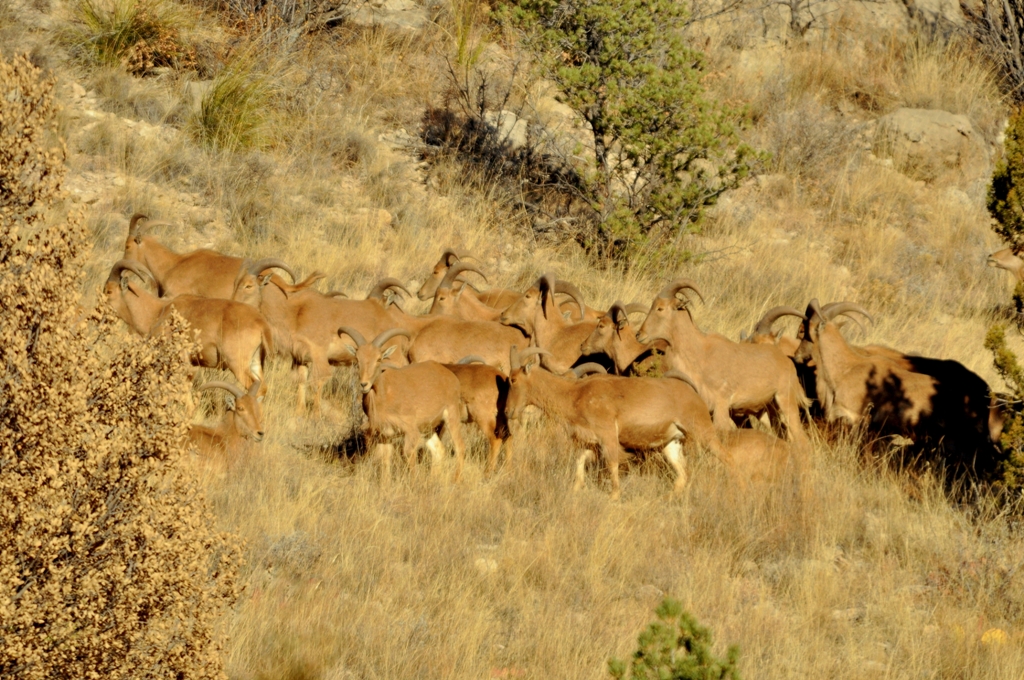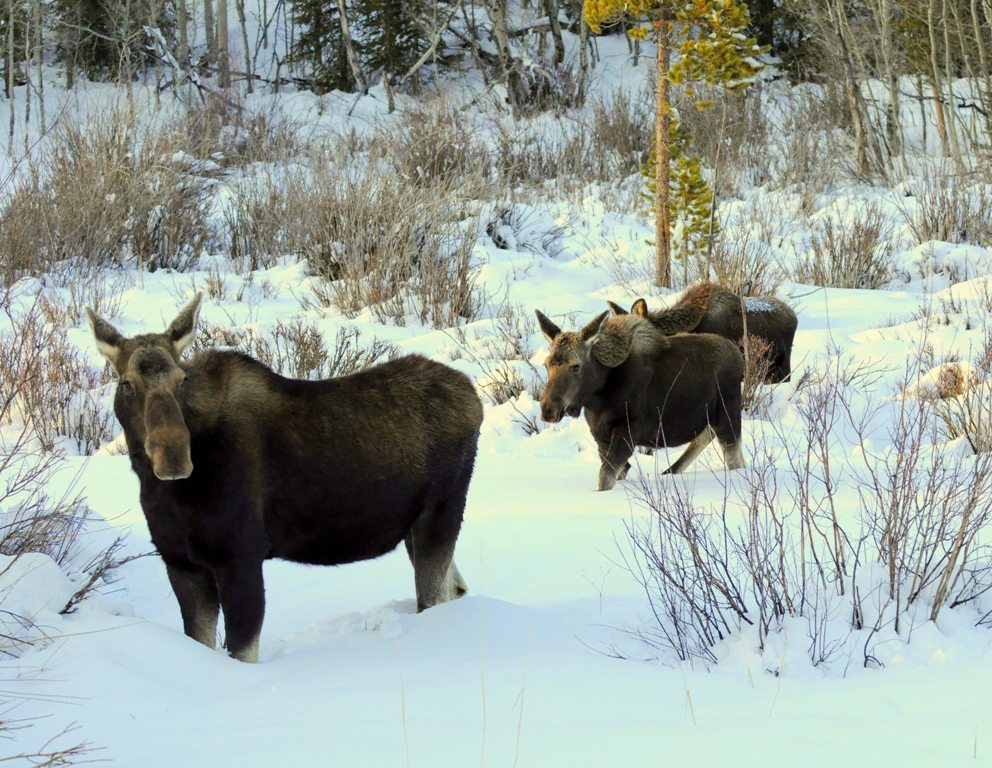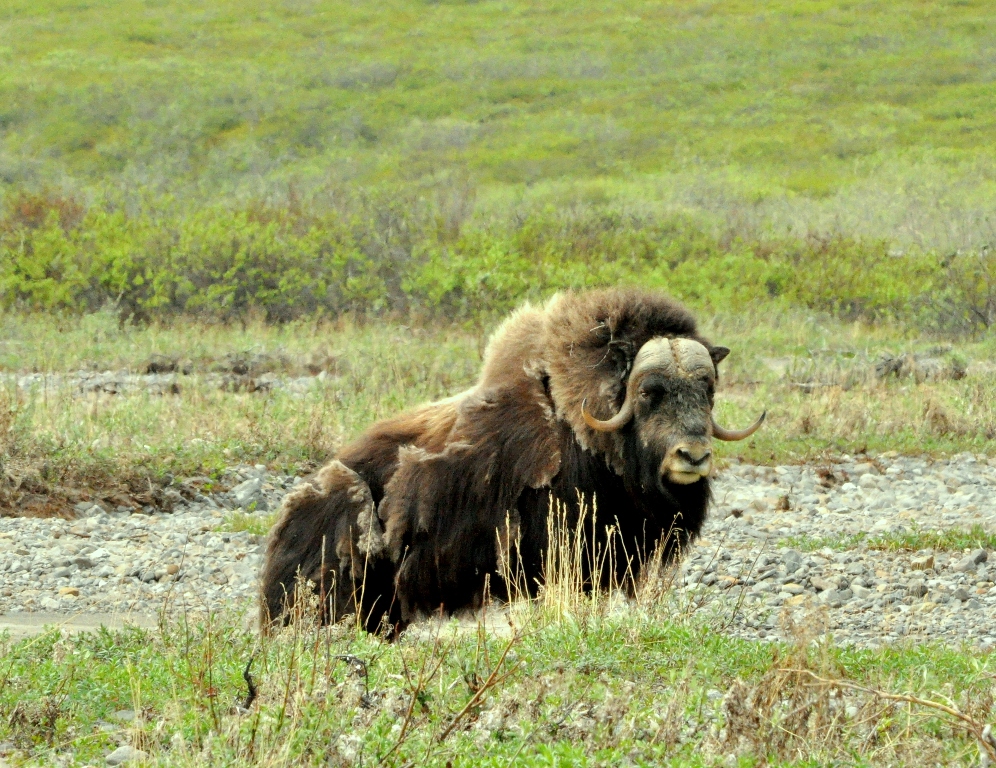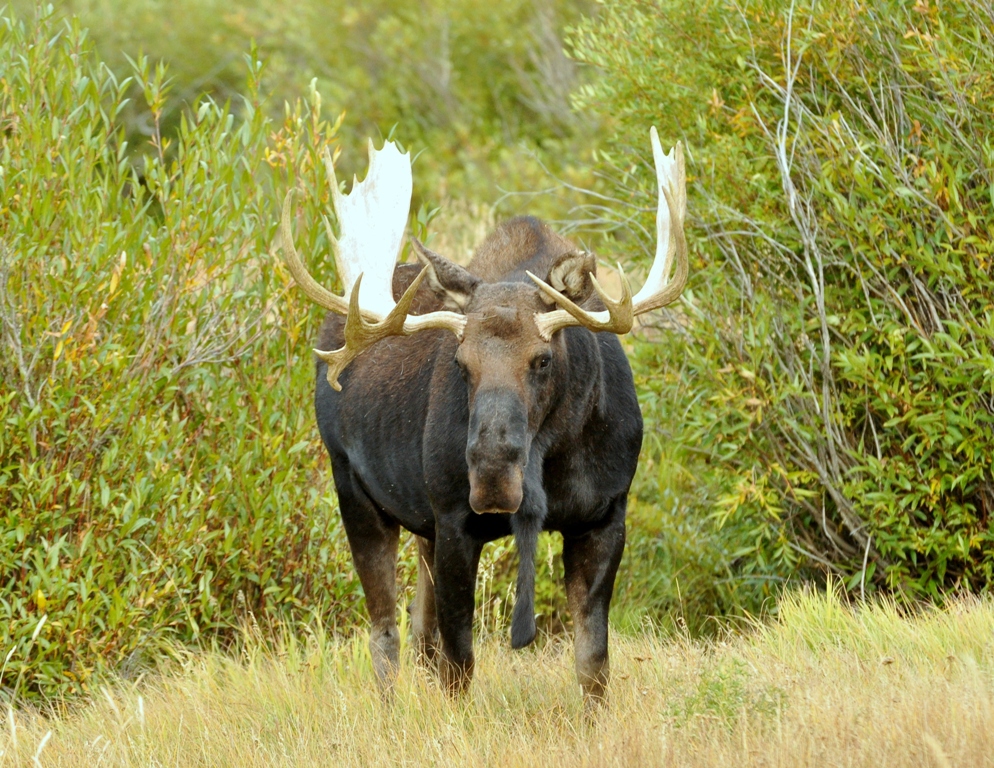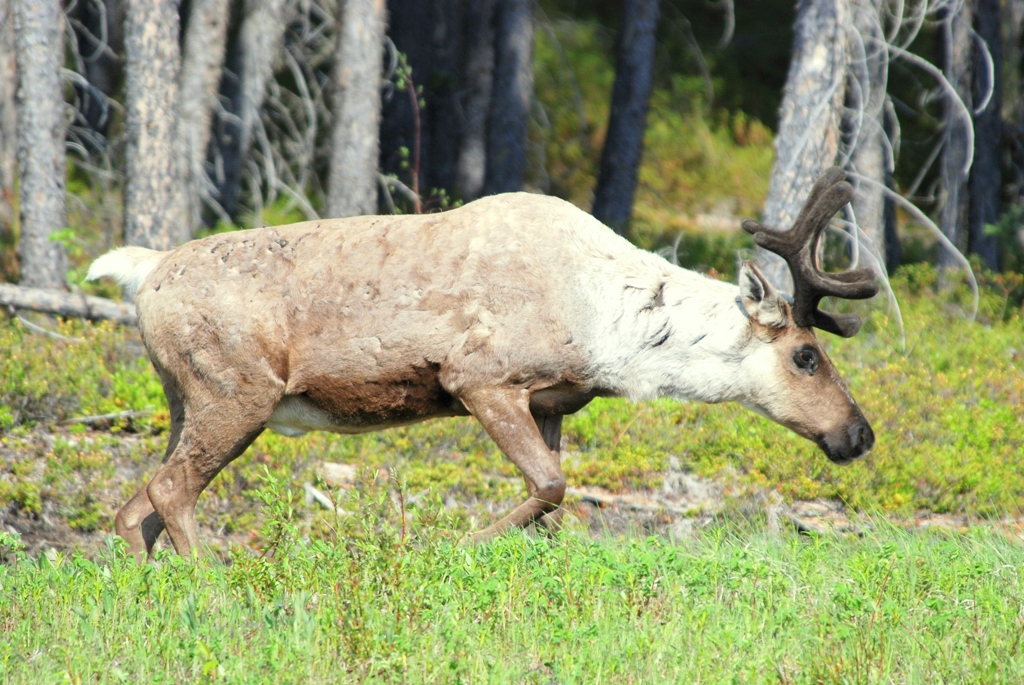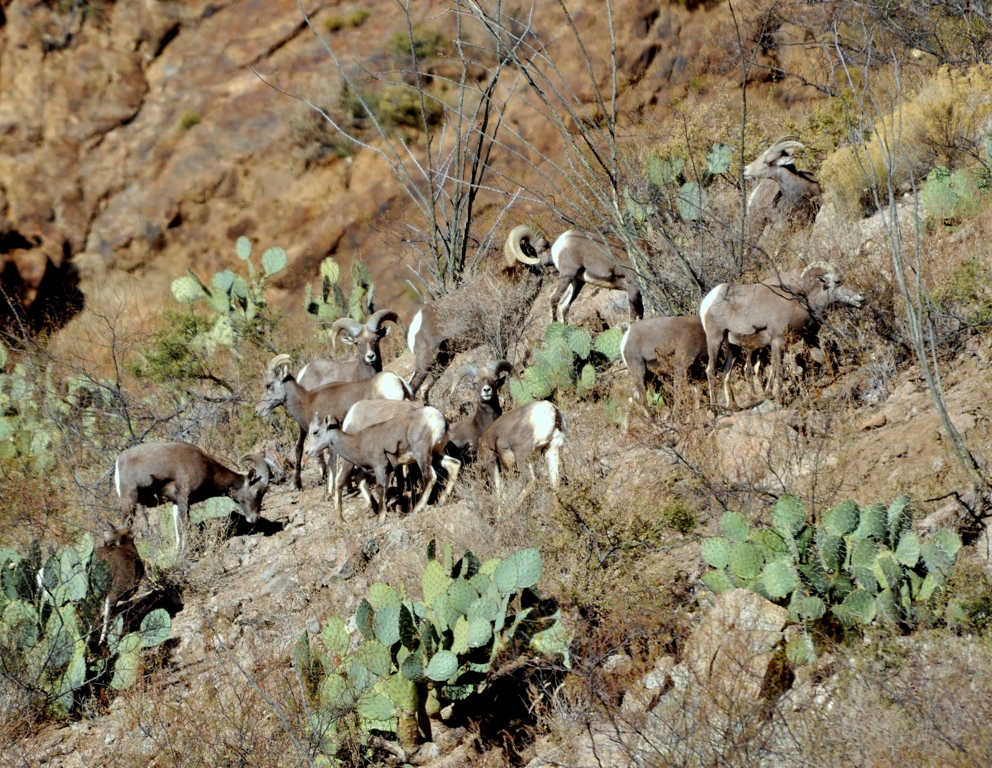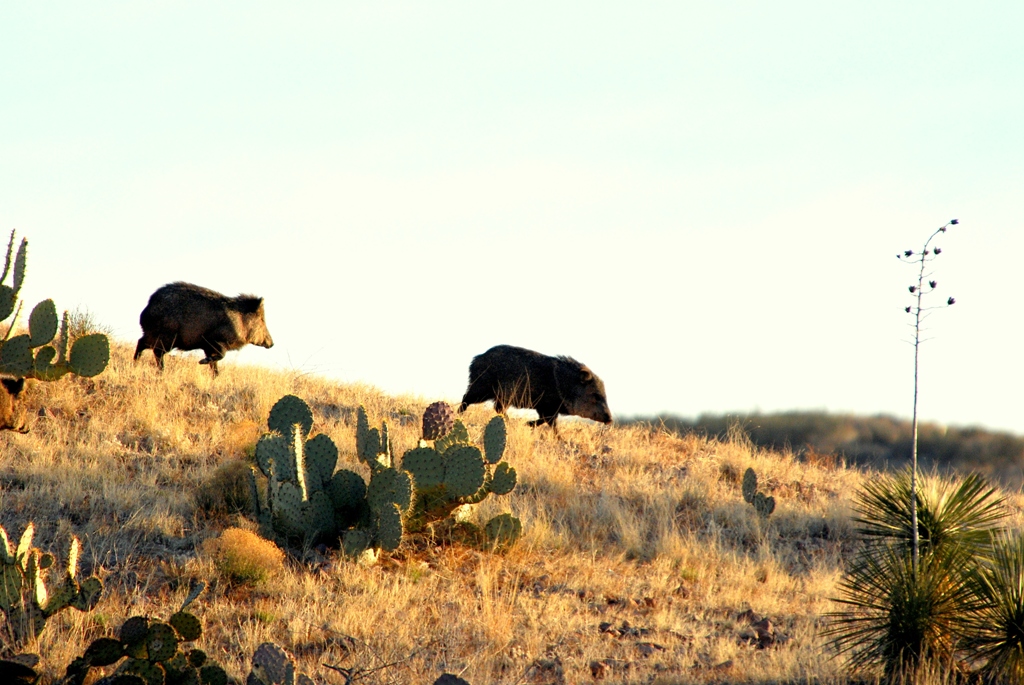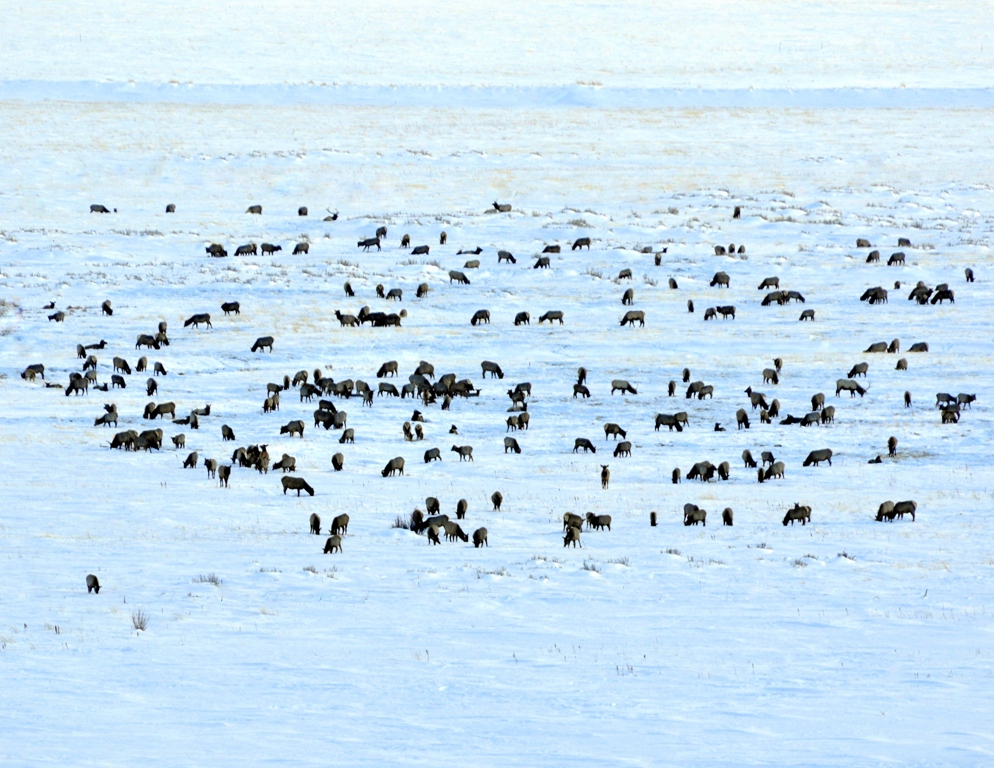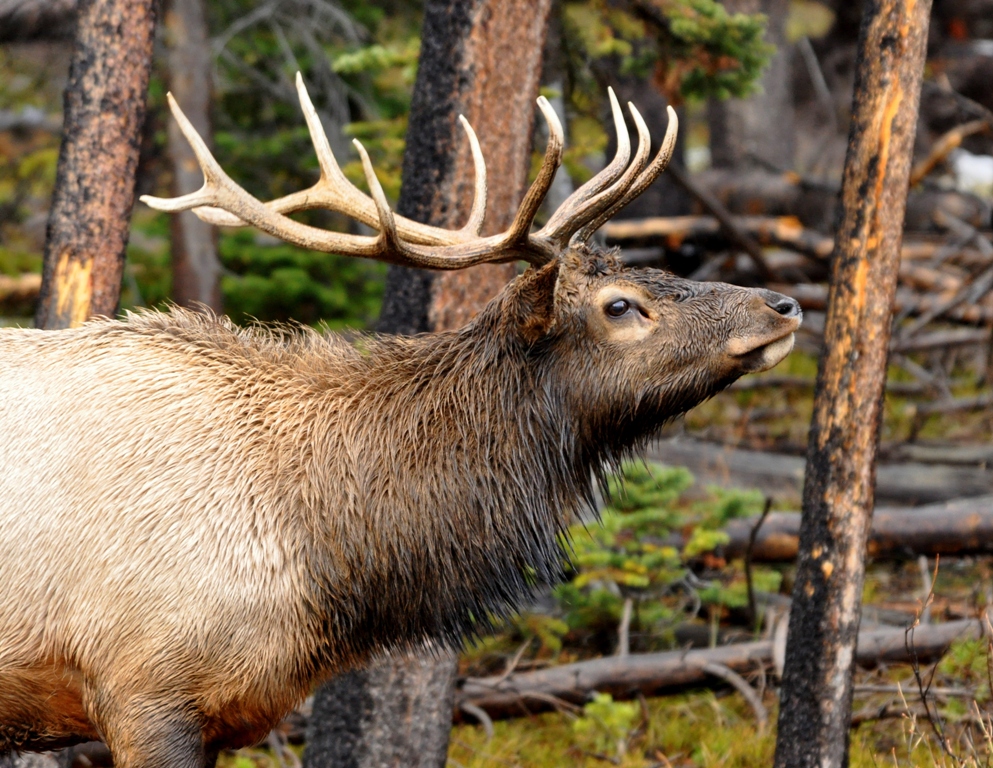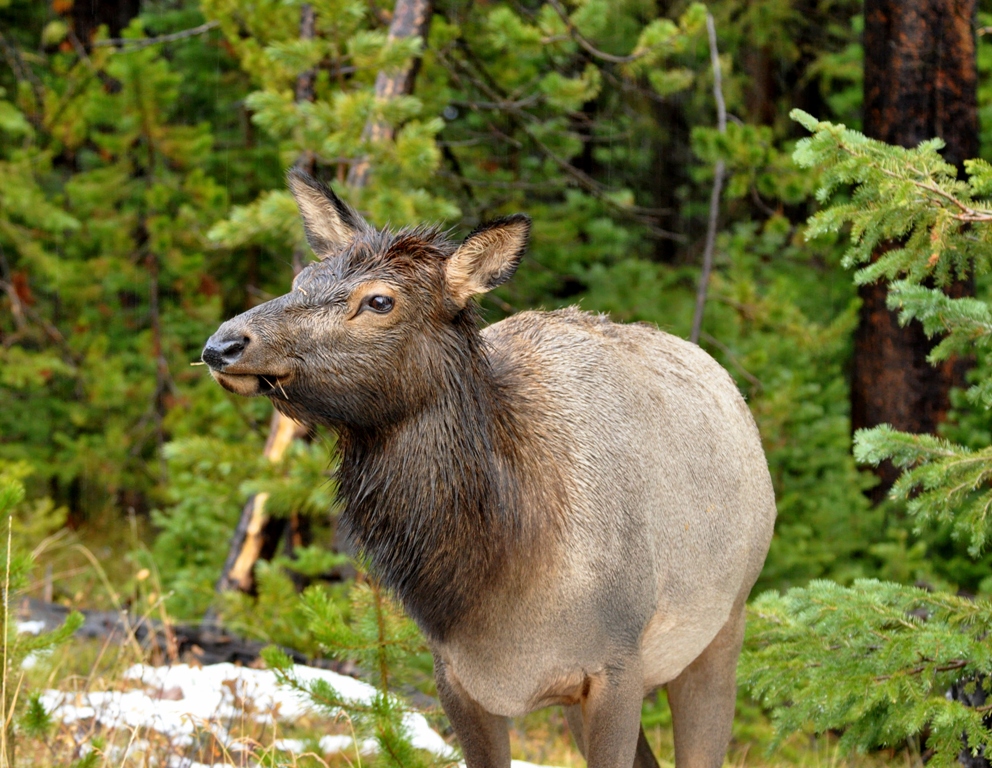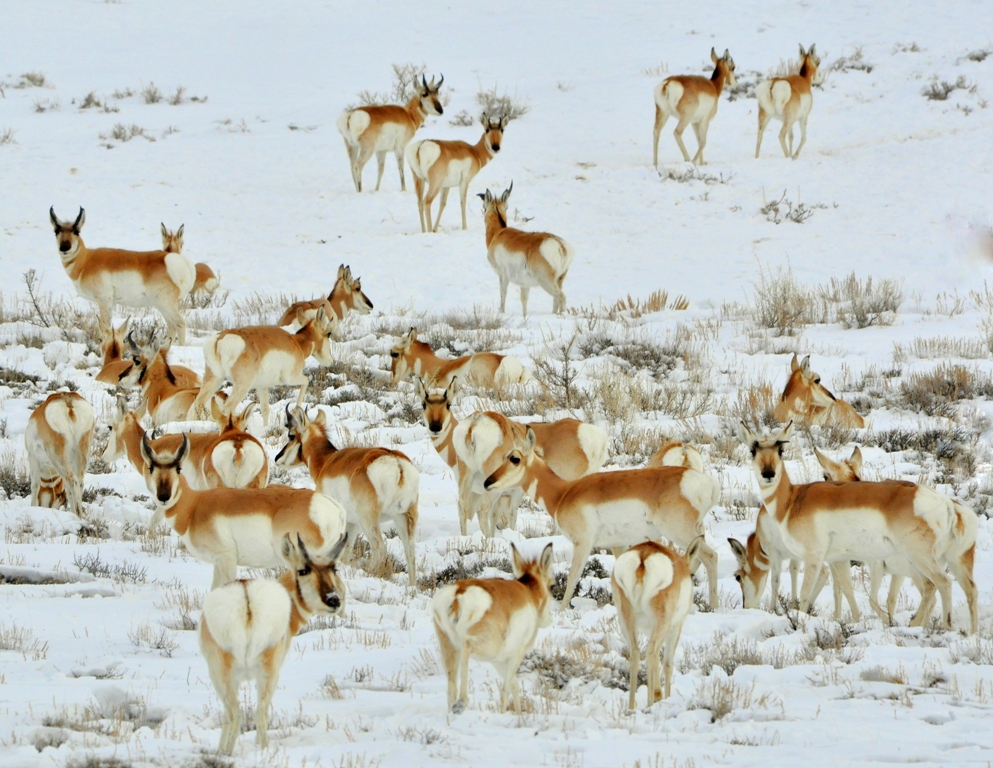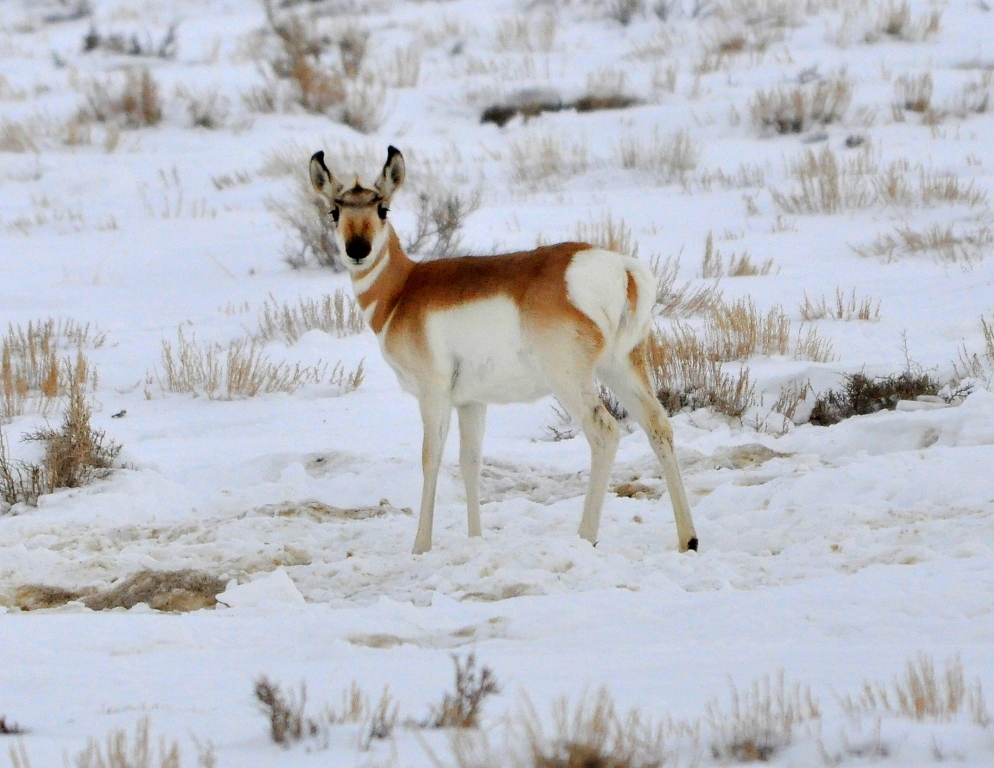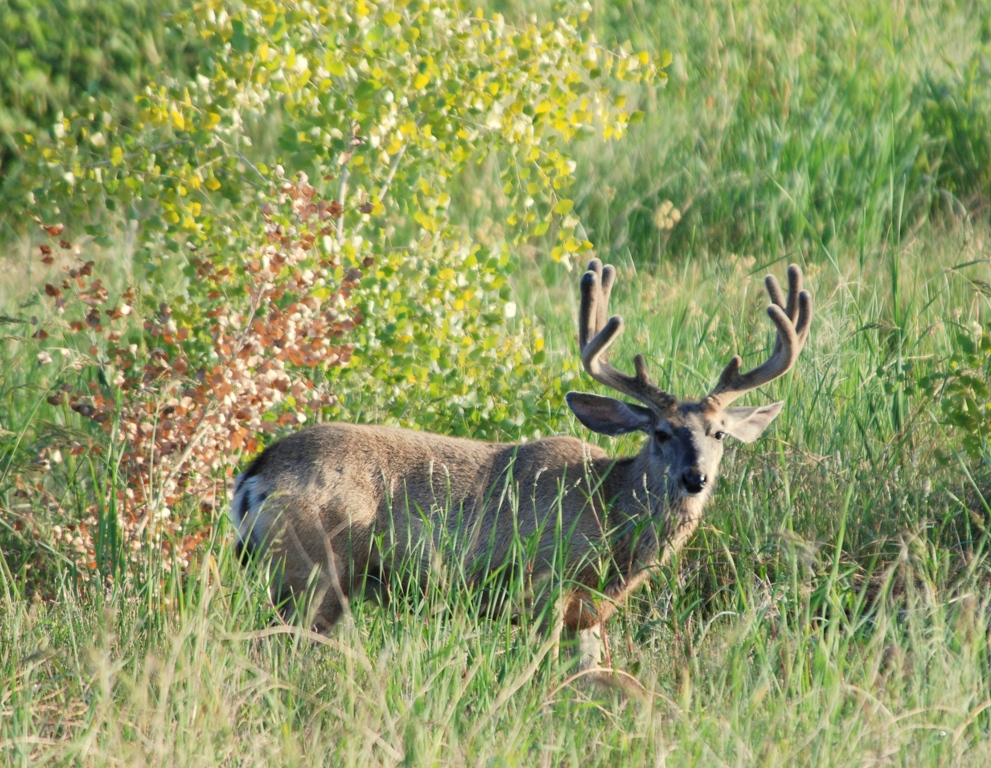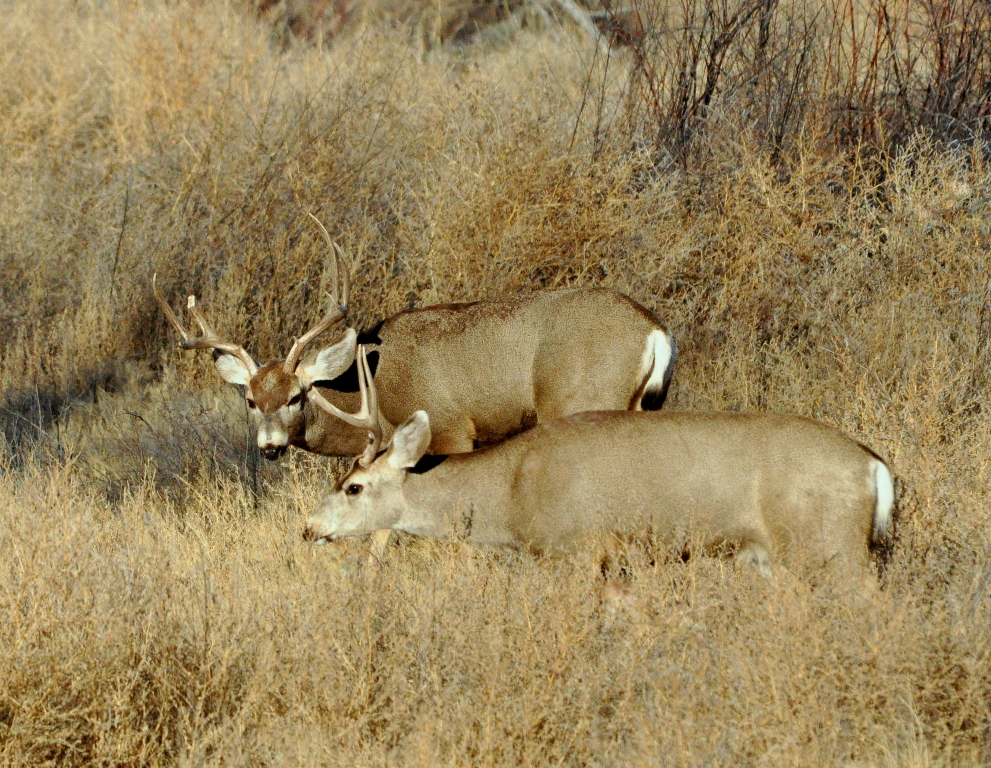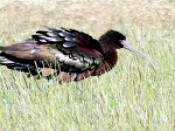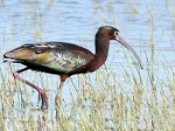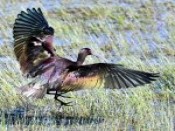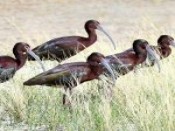Bighorn Sheep – Ram | Jasper, Alberta | June, 2011
This young Bighorn is just starting to shed it’s winter coat. The rocks behind it are an unusual color. |MC48-0119
Read MoreMusk Ox | Atigun Pass, Alaska | June, 2011
To me this fascinating animal is the one that best represents what is so special about the Arctic. |MC42-0220
Read MoreMoose – Bulls | Walden, Colorado | September, 2010
The bull on the right has not shed all of the velvet off his horns. It was a little too early in the fall for these bulls to be serious rivals. | MC25-0289
Read MoreMoose – Bull | Walden, Colorado | October, 2011
The bird sitting on this bulls back is a Black-billed Magpie. It hopped all over it’s back and the bull did not seem to even know it was there. |MC51-0166
Read MoreMoose-Bull | Walden, Colorado | September 2010
The dewlap hanging from the throat of this bull is the longest we have ever seen on a moose. Just what purpose it serves continues to be debated. |MC26-0026
Read MoreStone Sheep – Ram | Fort Nelson, British Columbia | May, 2011
Stone Sheep, Bighorn Sheep, Desert Bighorn Sheep, and Dall Sheep are the 4 types of wild sheep native to North America. |MC41-0095
Read MoreMusk Ox | Atigun Pass, Alaska | June, 2011
The Musk Ox is one of the oldest species of mammals living today, and one of the very few large animals that managed to hang on after the end of the last ice age 10,000 years ago.They shared this world with mammoths, mastodons, saber-toothed cats and giant ground sloths,yet while the vast majority of these animals disappeared the Musk Ox has managed to survive. |MC42-0215
Read MoreMoose – Immature Bull | Burgess Junction, Wyoming | May, 2009
This 1 year old bull moose was busy eating the bark off of the Aspen Tree you see behind him. I am not sure why he was still eating on the trees when the grass and willows were quite green. |MC4-0472
Read MoreMoose – Bull | Walden, Colorado | September, 2010
This bull has the longest dewlap, or bell, that we have ever seen on a moose, as well as a portion of his right antler is twisted 90 degrees. This almost certainly happened when his antlers were starting to grow and he injured this antler. |MC26-0023
Read MoreMoose – Bulls | Walden, Colorado | September, 2010
The bull in the background has not quite finished shedding the velvet off his antlers. They will change color as he rubbes them on bushes and trees. |MC25-0274
Read MoreCaribou – Bulls | Deadhorse, Alaska | June, 2011
These 4 bulls are Barren-Ground Caribou and belong to the Central Arctic Herd. The spring migration for these bulls will be complete when they reach the coastline of the Arctic Ocean, which is still about 50 miles further north. When they reach the coast they will spread out to feed, the cows will have their calves, and in 2 to 3 months they will start migrating back south for the winter. |MC44-0265
Read MoreMusk Ox | Atigun Pass, Alaska | June, 2011
Musk Ox have a double coat of hair,a long outer layer that hangs to the ground in winter, and a under layer called qivuit which is the warmest and lighest wool in the world. Prices for qivuit yarn range between $40 to $80 dollars per ounce. This animal has started sheading it’s outer coat. |MC42-0216
Read MoreJavelina | Lordsburg, New Mexico | January, 2010
Even though Javelines may appear to be closely related to pigs, they are in fact a quite different animal and are in a different family.Pigs and Javelinas actually parted ways about 30 million years ago. These animals, which are more correctly called Collared Peccarys, have very poor eye sight, but a very good sense of smell.Due to their poor eyesight they may appear to be charging when ,in fact, they are simply trying to escape. | MC17-0125
Read MoreCaribou – Bull | Deadhorse, Alaska | June, 2011
This is a Barren-ground Caribou bull from the Central Arctic Herd. |MC44-0059
Read MoreMusk Ox – Cow | Deadhorse, Alaska | June, 2011
This Musk Ox cow had a very young calf with her that is out of the picture to the right. |MC44-0201
Read MoreMusk Ox – Calf | Deadhorse, Alaska | June, 2011
This calf is only four or five weeks old. It’s mother is laying out of the picture to the left. |MC44-0208
Read MoreCaribou – Bull | Deadhorse, Alaska | June, 2011
This bull is a Barren-ground Caribou and belongs to the Central Arctic Herd. |MC45-0011
Read MoreCaribou – Immature Bull | Fort Nelson, British Columbia | June, 2009
This young bull is a Woodland Caribou. They live a little further south than their Barren-ground Caribou relatives. |MC8-0443
Read MoreJavelina | Lordsburg, New Mexico | March, 2009
Javelinas are a lot of fun to try to photograph up close. Due to their poor eyesight, if you carefully move into position in front of a group that is feeding, they will often move right past you and never know you are there. More often than not, the wind will carry your scent to them and they will scatter in all directions. | |MC2-0485
Read MoreCaribou – Immature Bull | Muncho Lake, British Columbia | May, 2009
This young bull is a Woodland Caribou. |MC5-0473
Read MoreMoose – Bull | Seward, Alaska | June, 2009
If you look close you can see an excellent example of moose drool. |MC7-0154
Read MoreBarbary Sheep | Lincoln, New Mexico | February, 2011
Barbary Sheep are not native to New Mexico. They were transplanted into New Mexico from North Africa 45 or 50 years ago. |MC32-0271
Read MoreMusk Ox | Atigun Pass, Alaska | June, 2011
Contrary to their name and appearance, Musk Ox have no true musk gland and are not oxen. Musk Ox are more closely related to sheep and goats and are in their own genus, Ovibos, which is Latin for sheep ox. The males do emit a musty cologne during the mating season. |MC43-0150
Read MoreMoose – Bull | Walden, Colorado | September, 2010
This bull has a very long dewlap and his right horn was apparently injured when it was growing. |MC25-0255
Read MoreCaribou – Bull | Fort Nelson, British Columbia | June, 2009
This is a Woodland Caribou bull. |MC8-043
Read MoreJavelinas | Lordsburg, New Mexico | March, 2009
Javelinas have, for centuries, been slowly moving north from their South American rainforest home, where they still live. They moved through Mexico and into Texas, Arizona, and New Mexico as recently as 150 years ago. In New Mexico they continue to move slowly north and have now reached Bosque del Apache, which is only 90 miles south of Albuquerque. How much farther north they can move will be determined by how well they adapt to the increasingly colder winters. ||MC2-0299
Read MoreElk | Walden, Colorado | January, 2011
As the winter snows pile up in the surronding mountains the Elk are forced to move into these open valleys and join into large herds to make it through the winter. |MC30-0142
Read MoreMule Deer – Bucks | Bosque del Apache | January, 2010
The deer in the background has broken off one of his horns fighting with other bucks to establish who is dominant. He does not appear too comfortable with the buck walking past him. |MC17-0229
Read More

